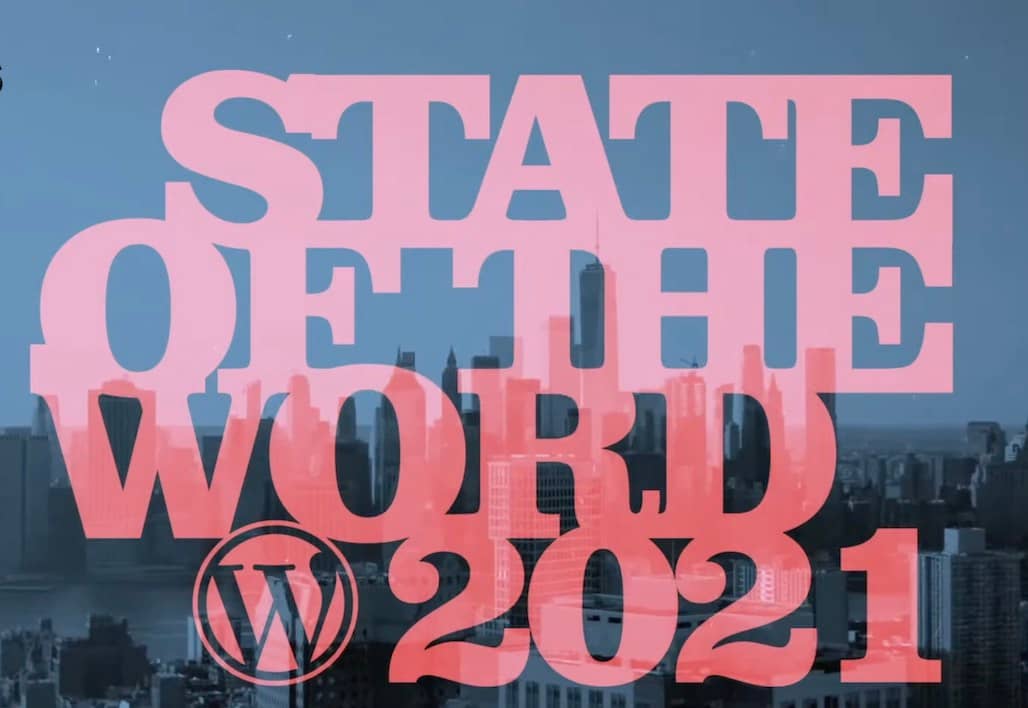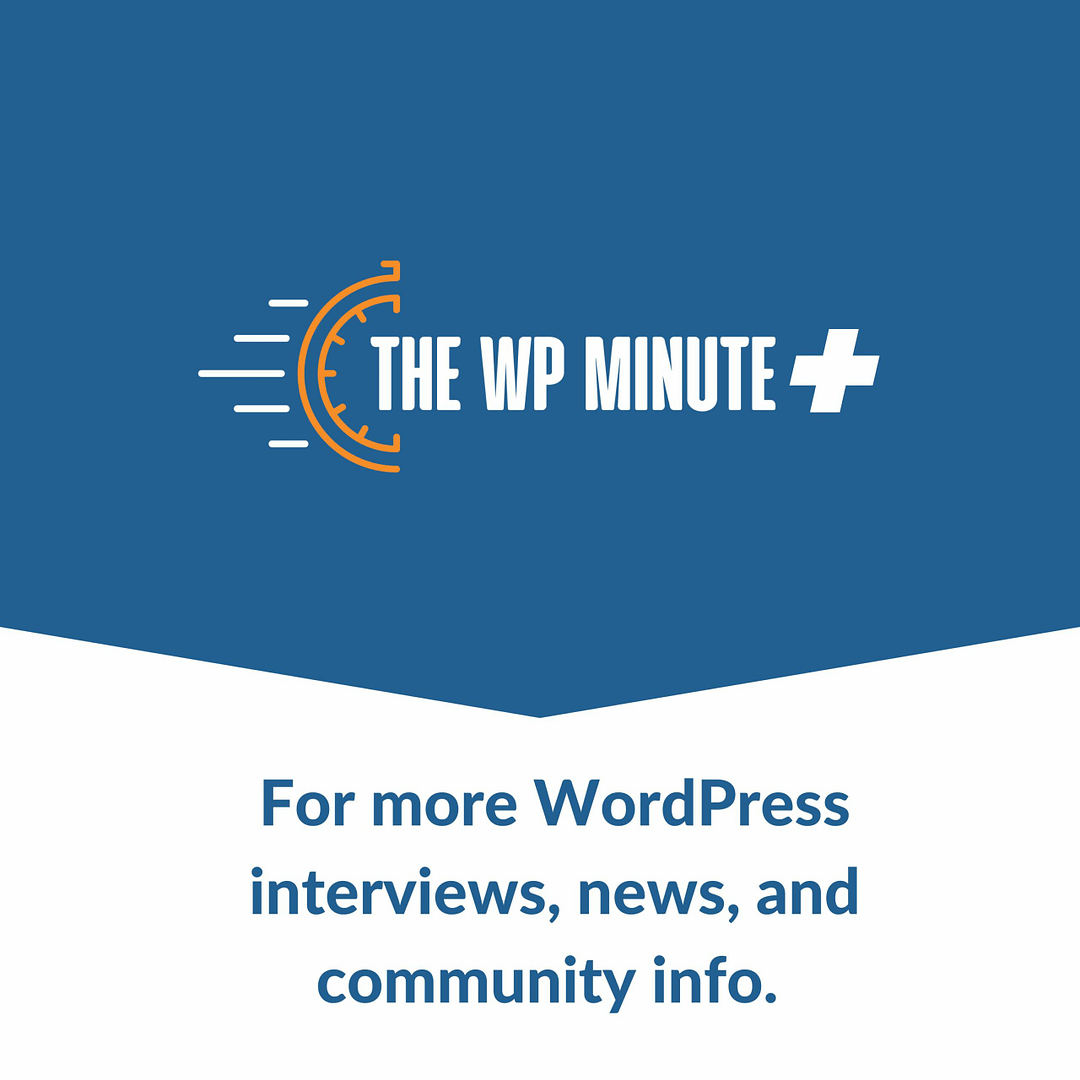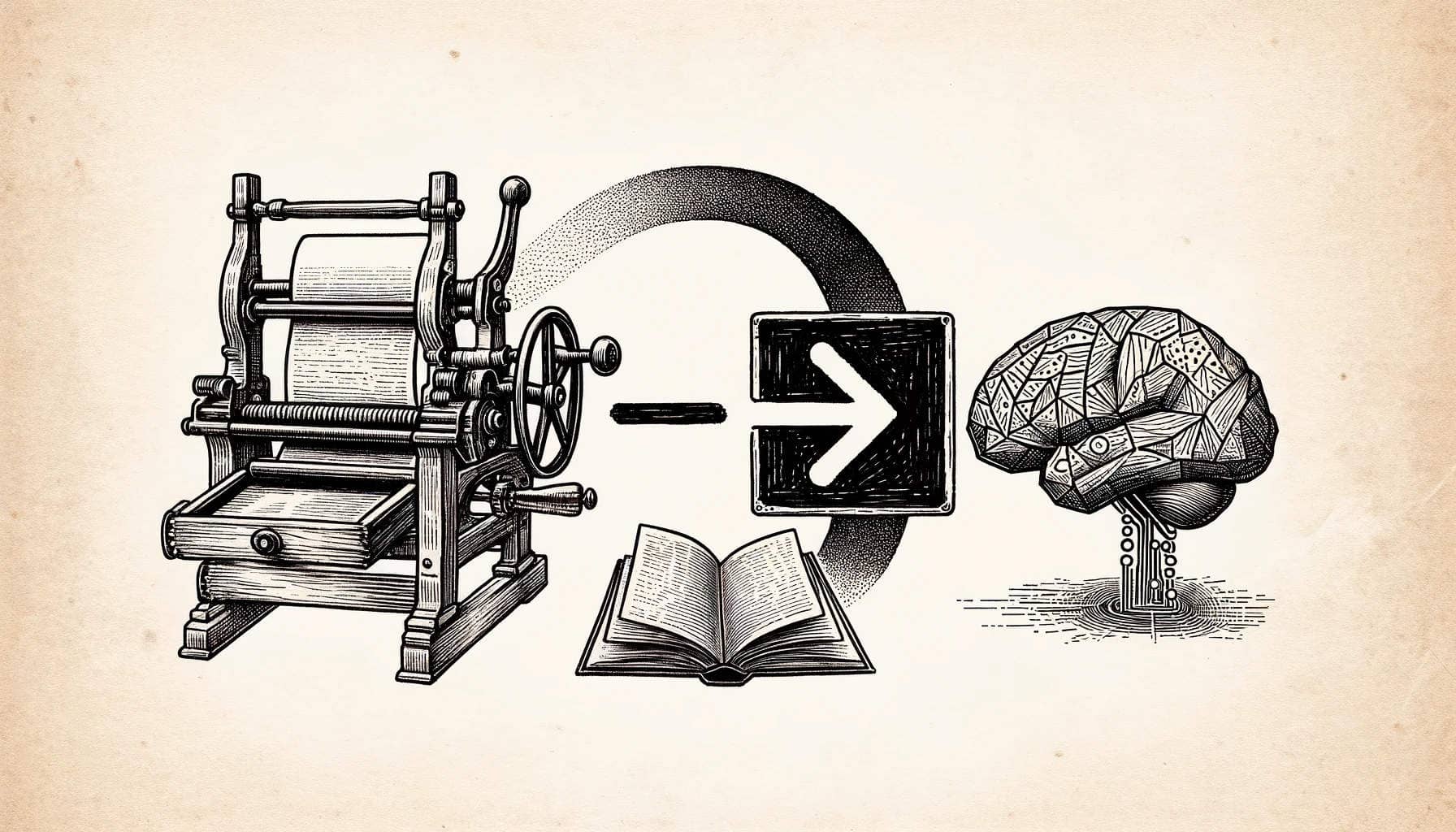State of the Word 2021 just concluded in NYC.
Just over 2 hours of updates around the community, the software, and the vision of Matt Mullenweg. This episode is an entire recording of the livestream broadcast over YouTube including audience + listener questions.
If you enjoy content like this, please consider giving back to WordPress or donating to this publication.
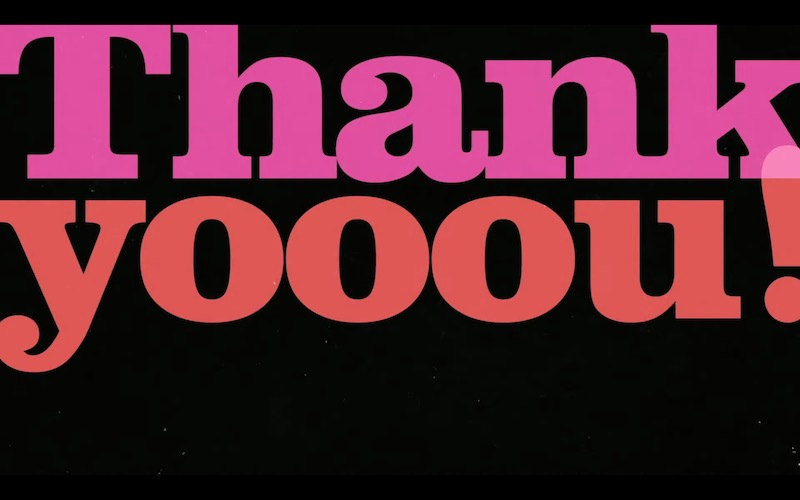
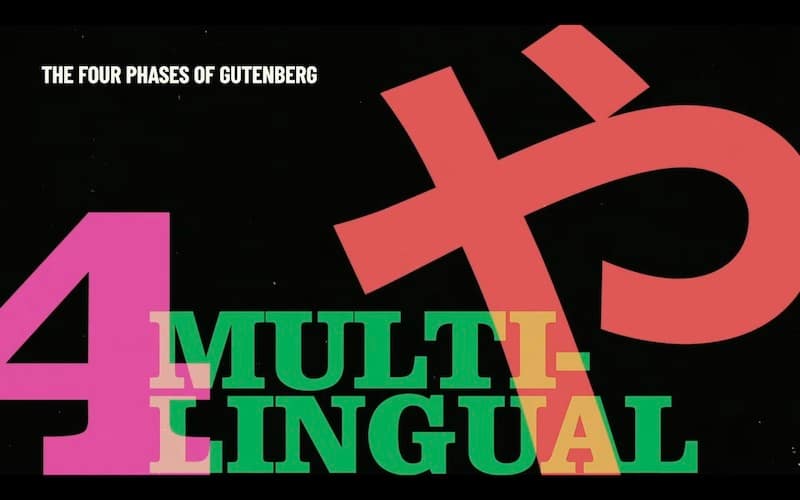
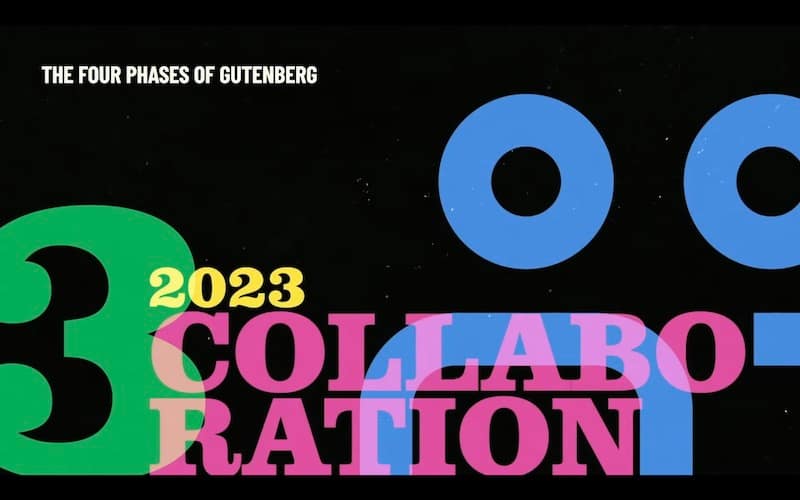
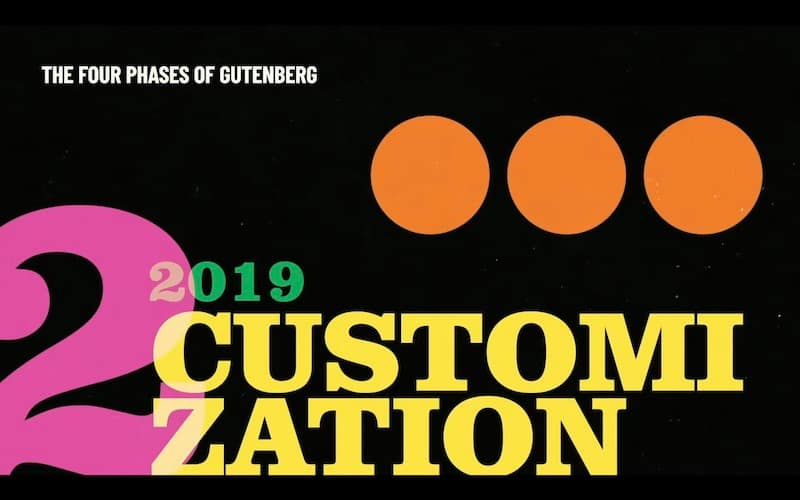
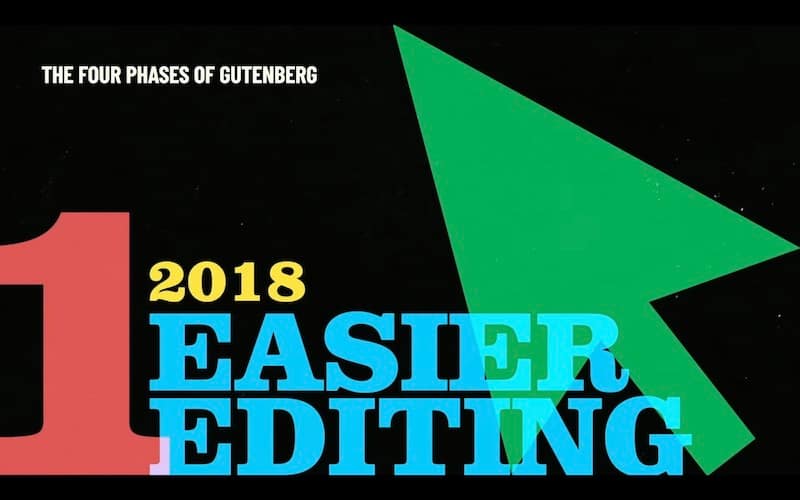
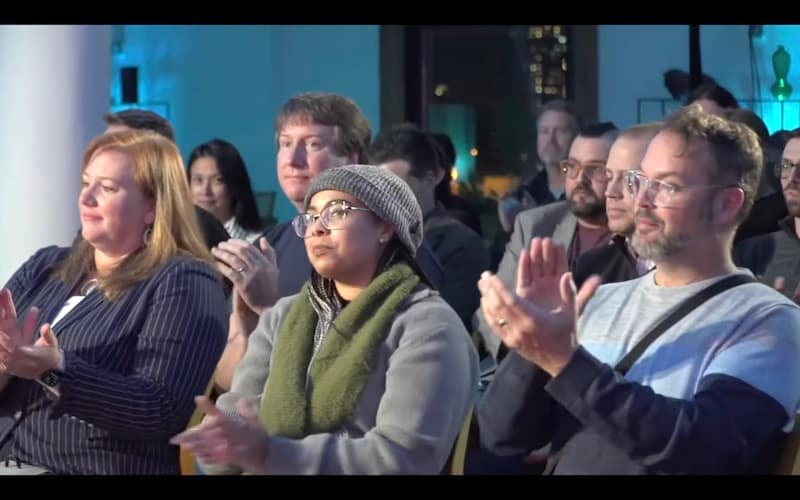
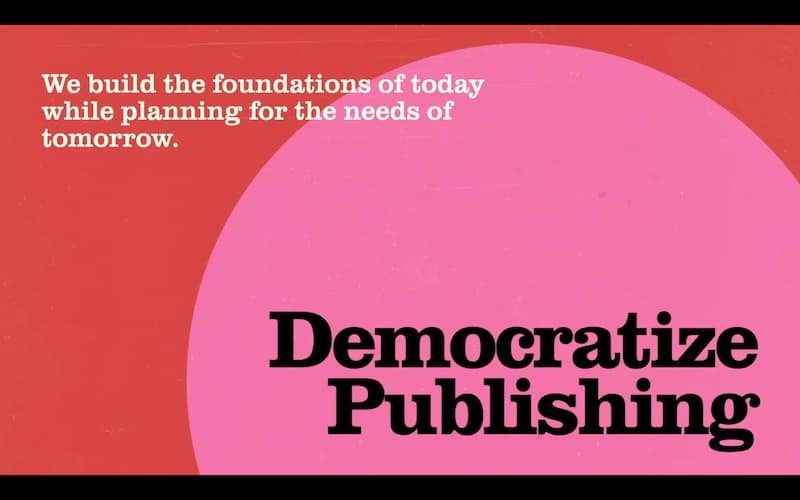
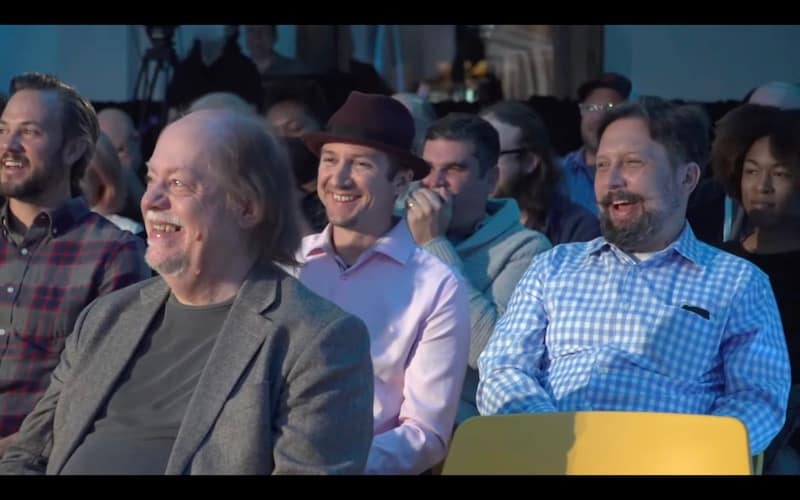
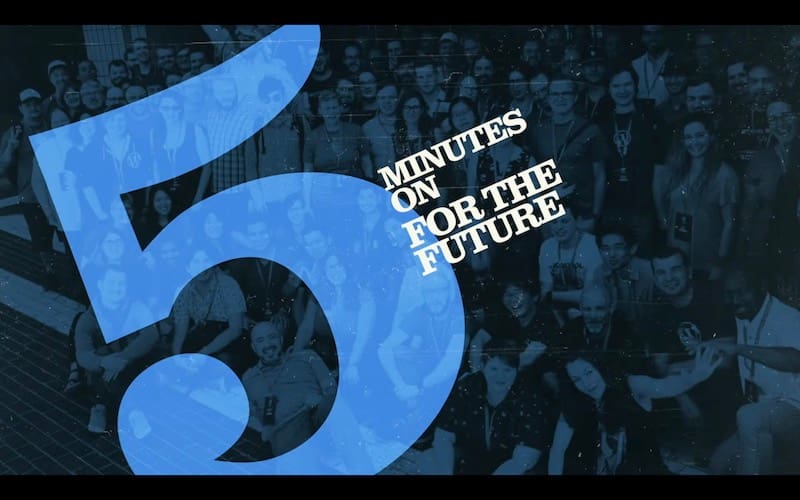
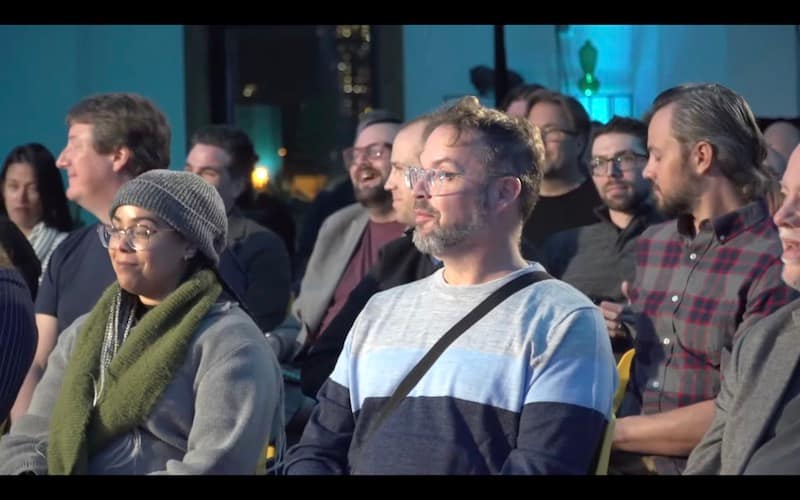
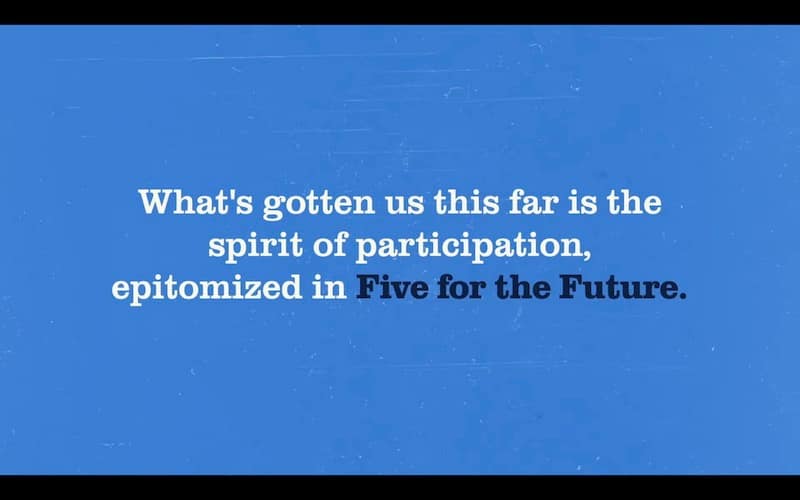
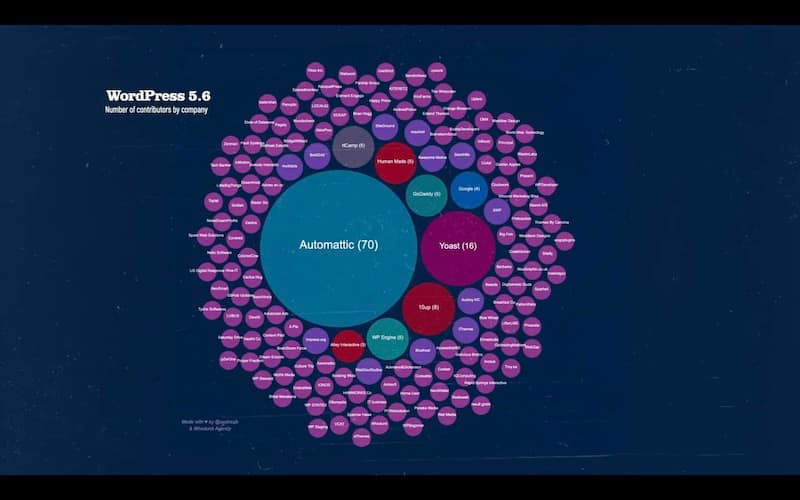
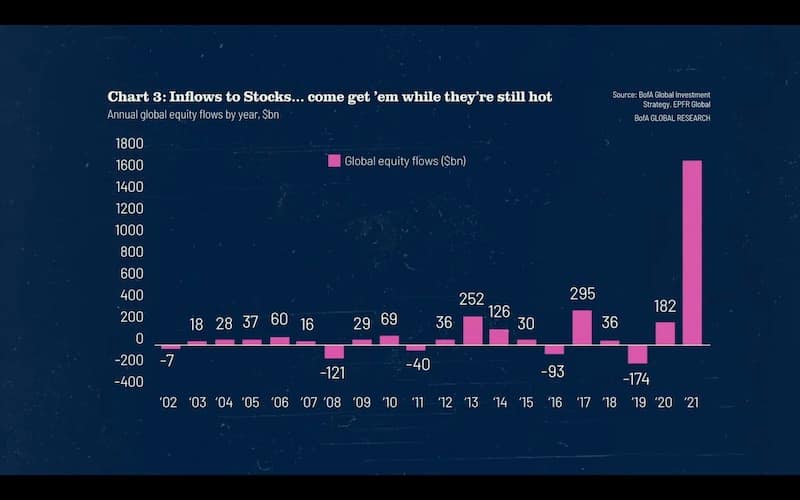
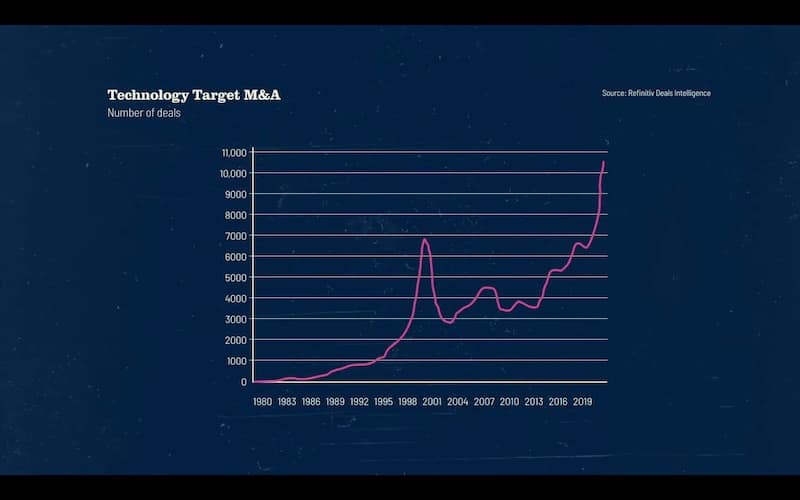
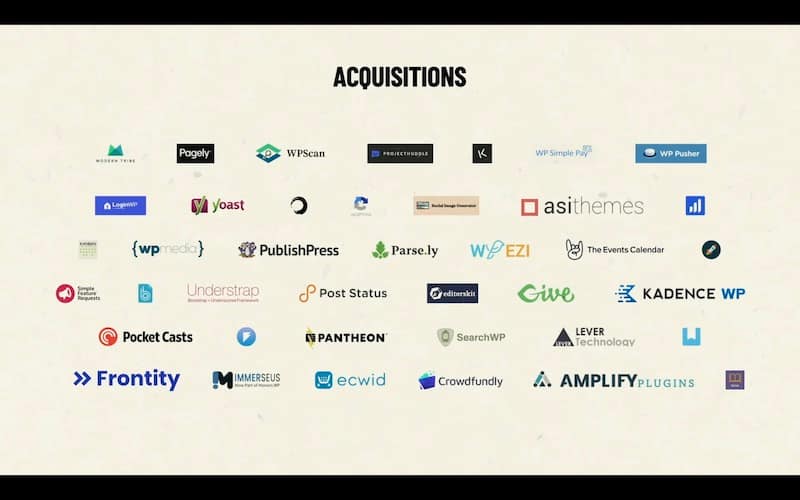
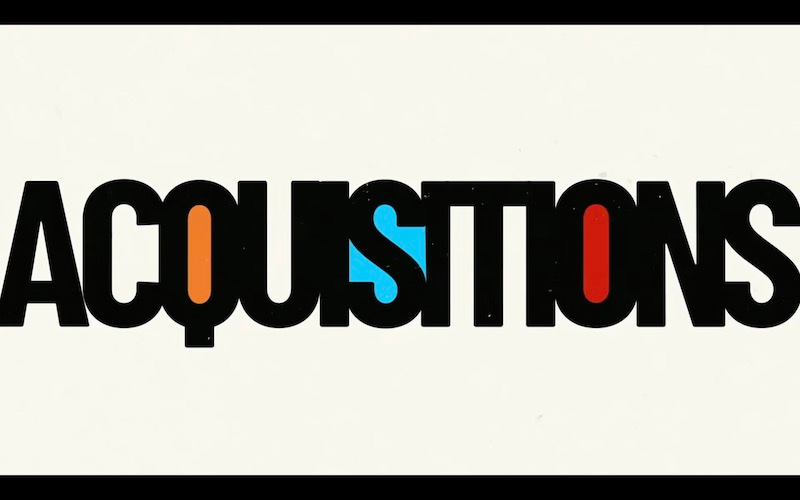
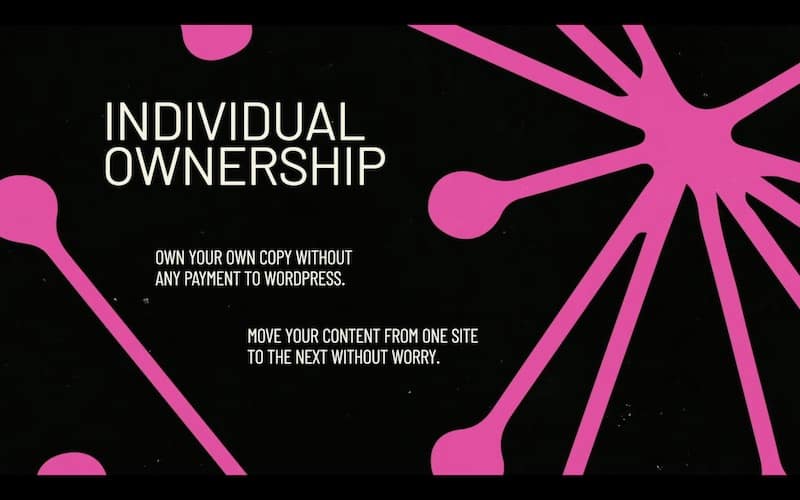
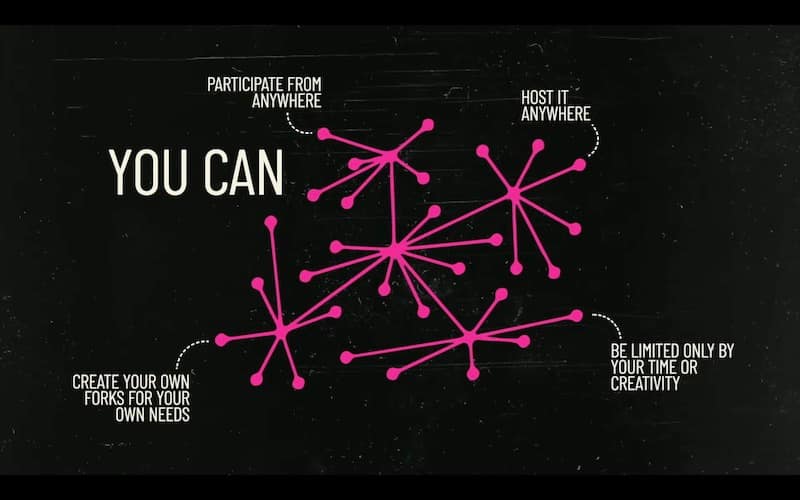
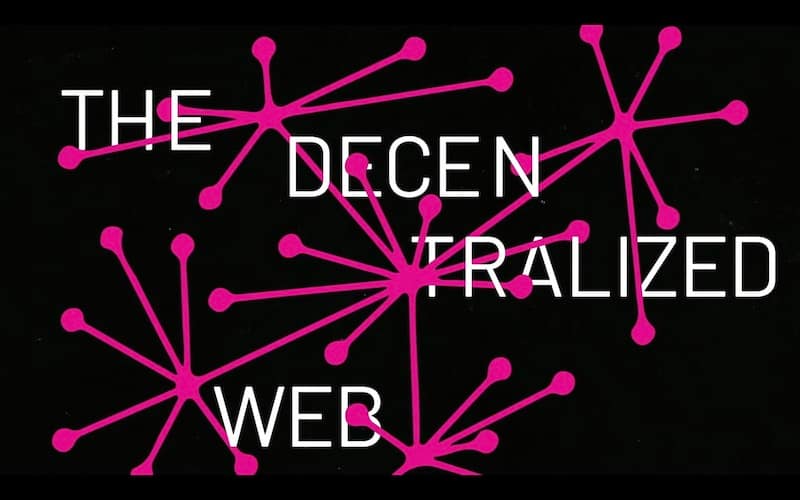
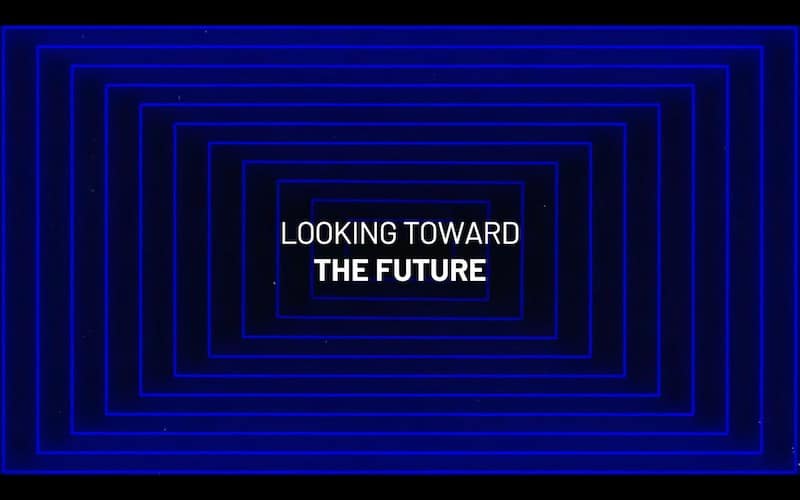
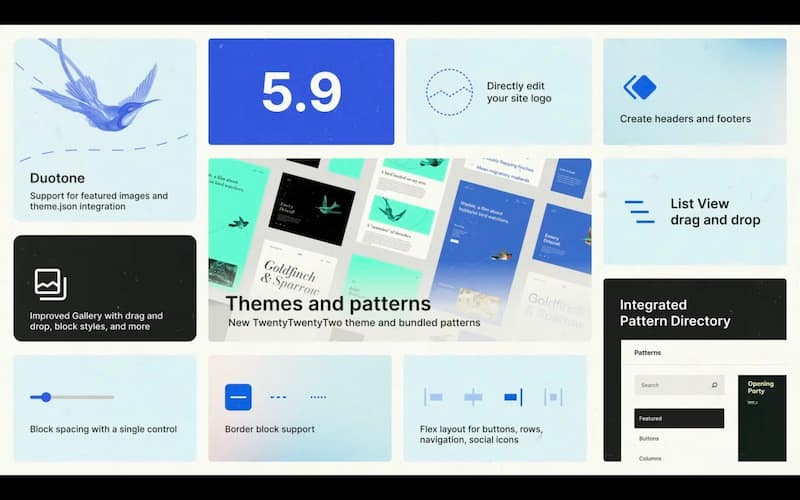
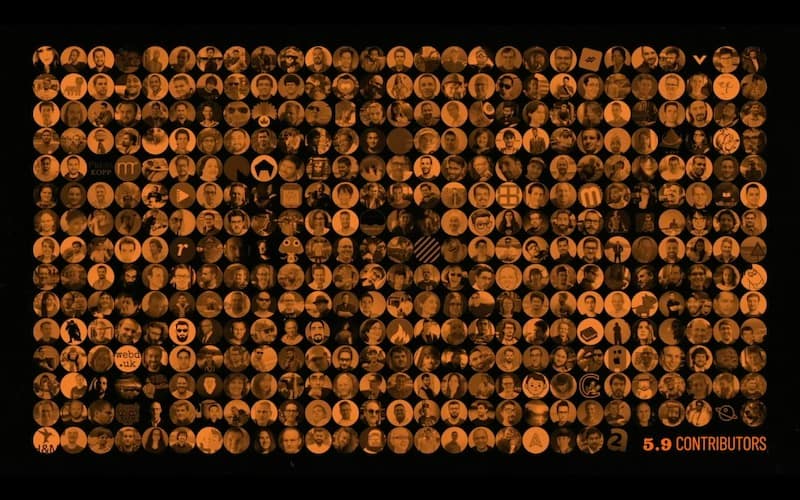
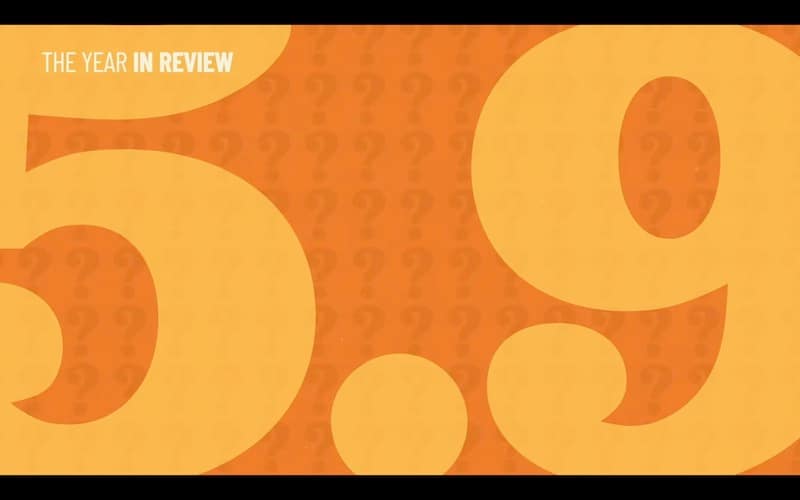
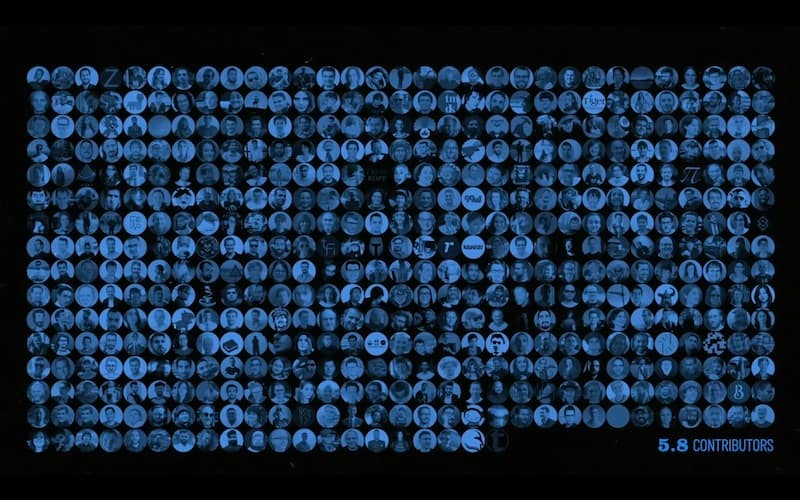
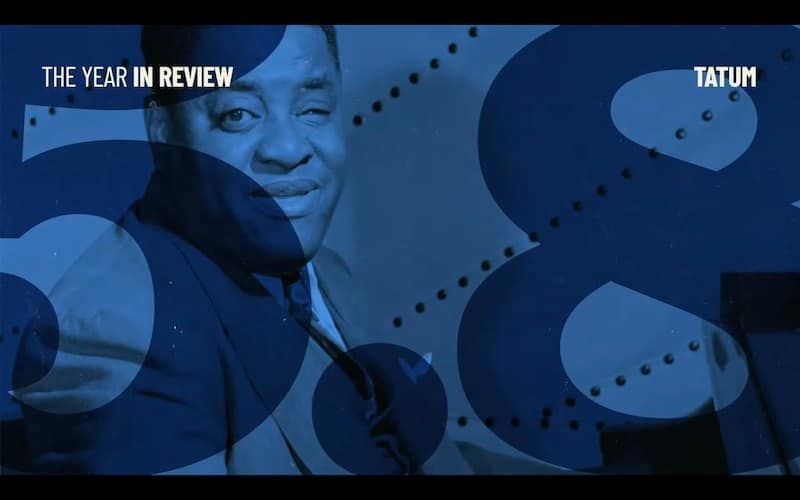
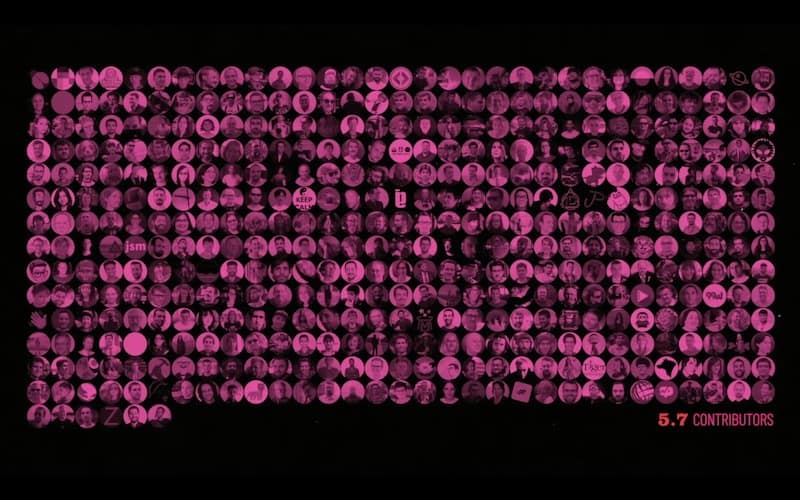
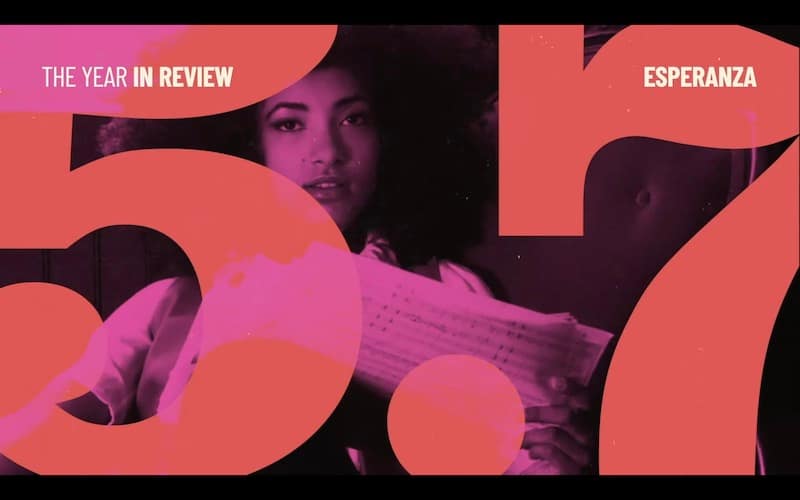
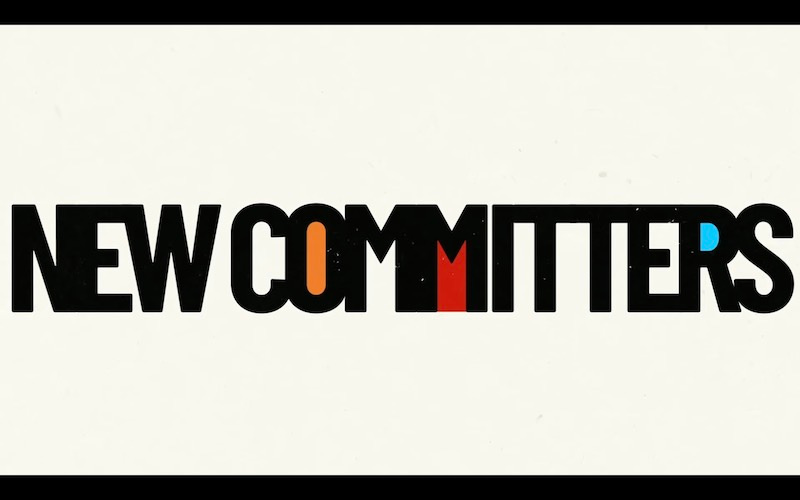
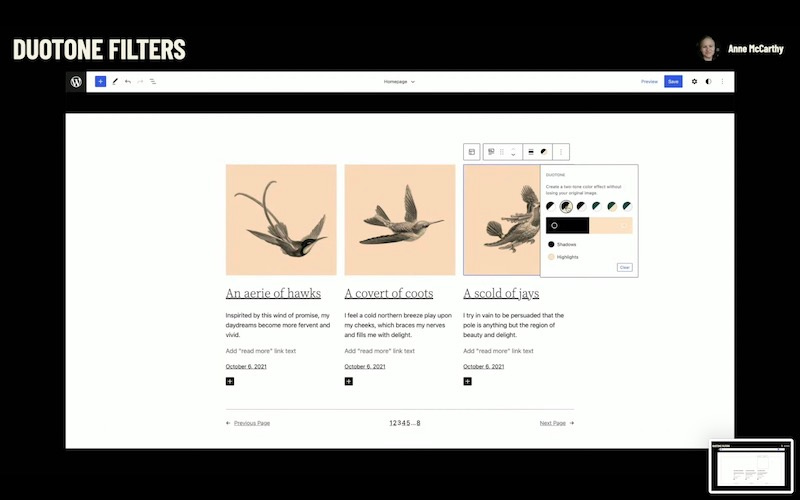
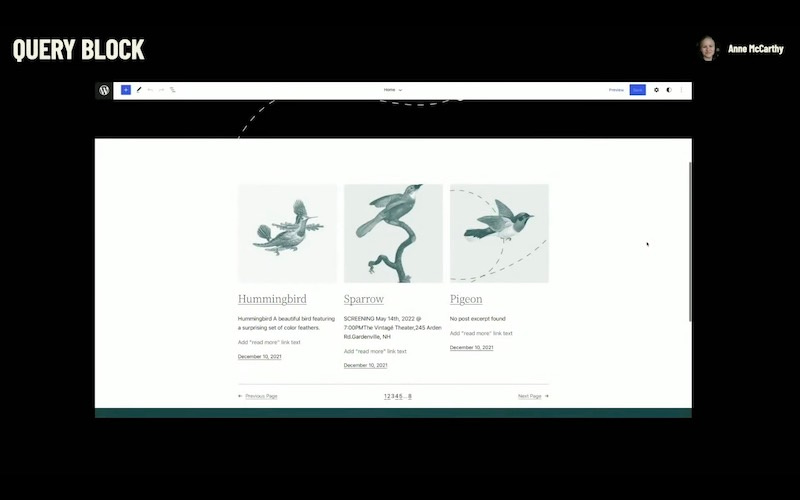
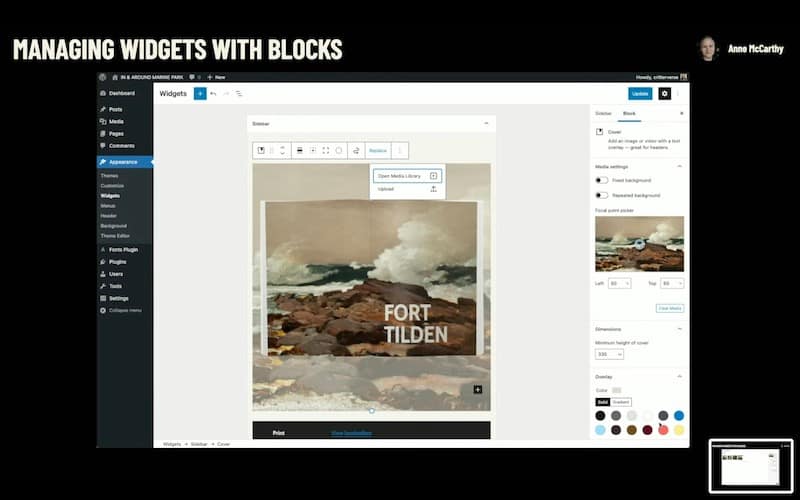
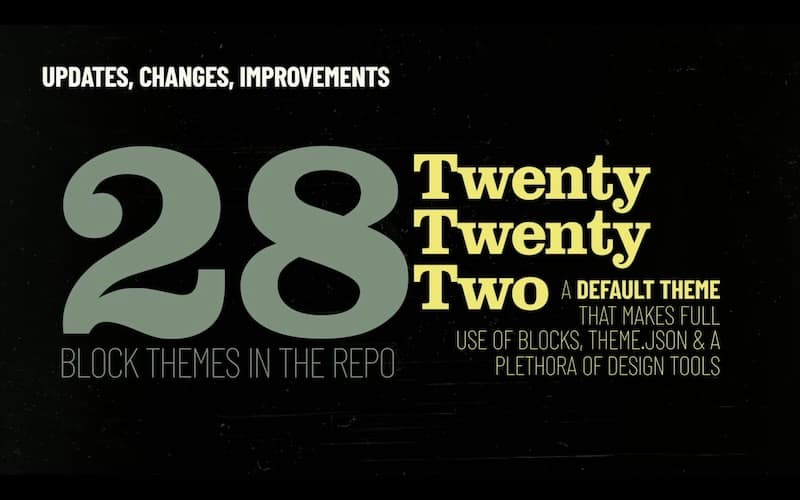
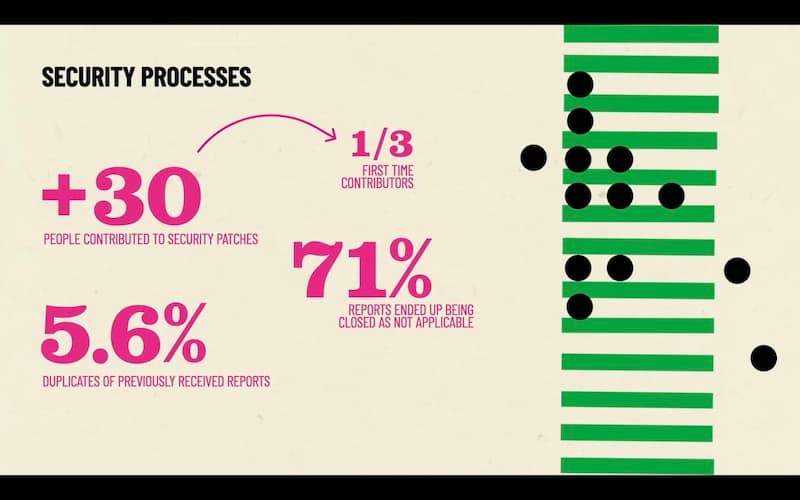
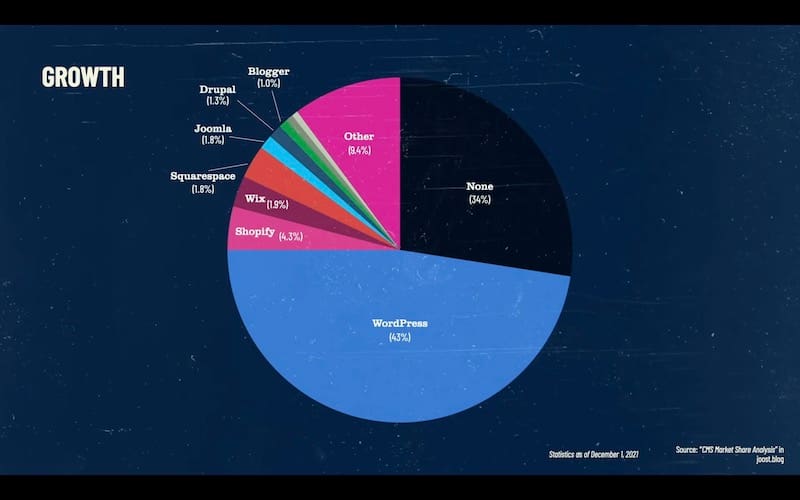
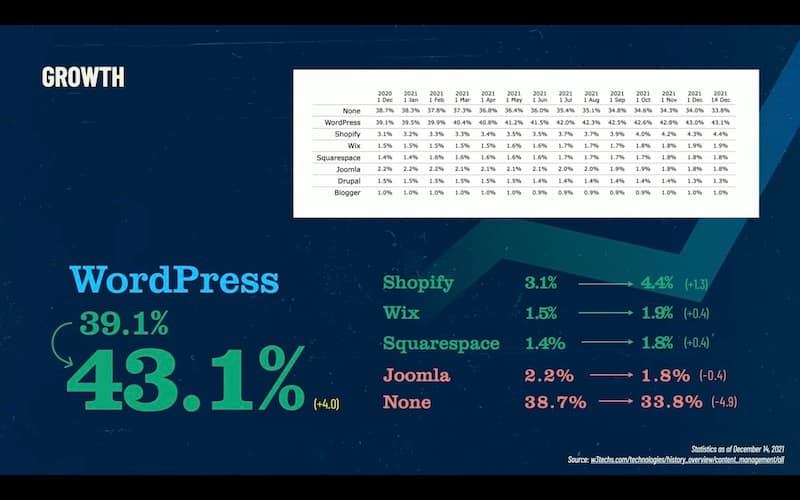
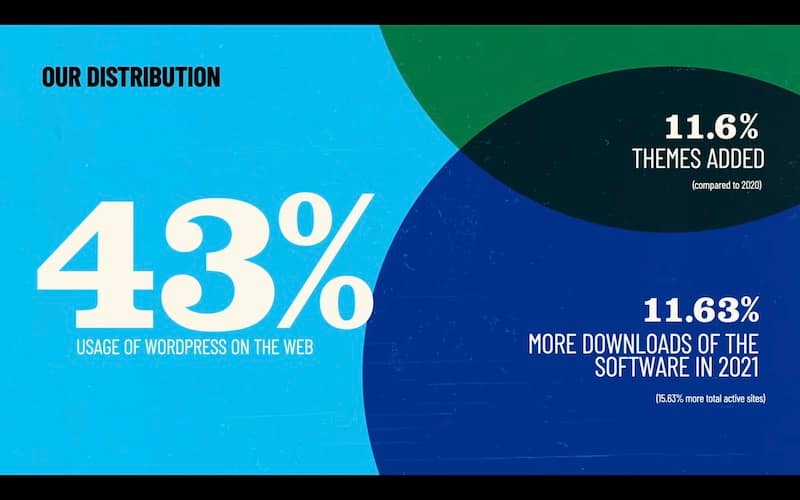
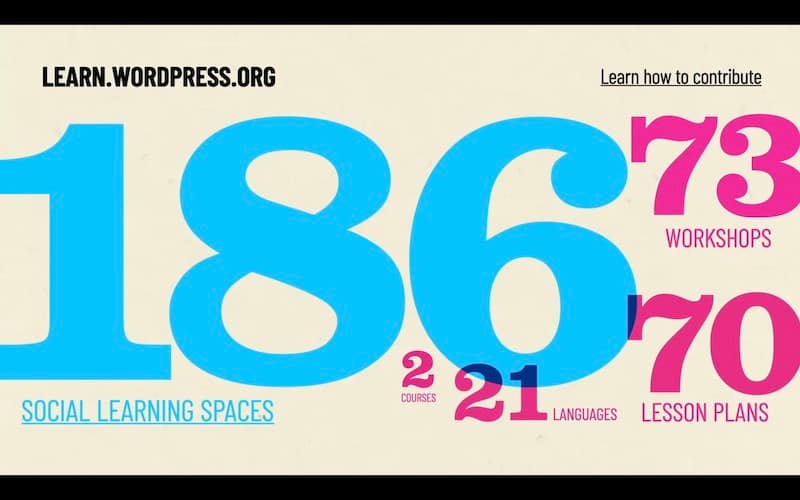
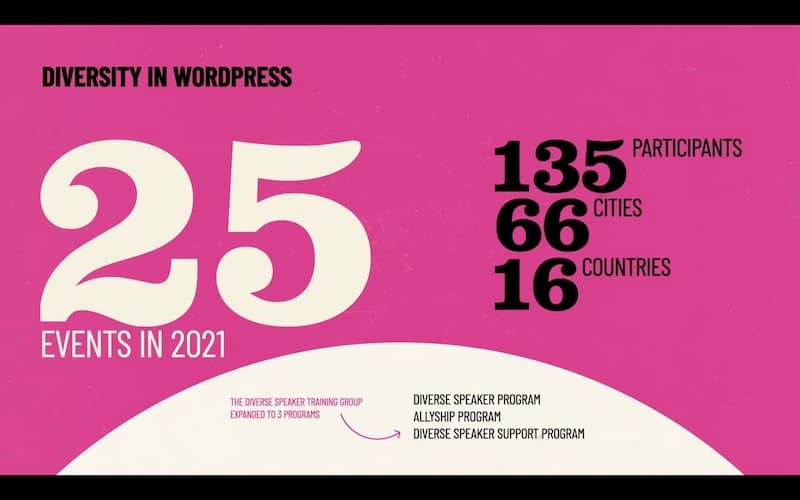
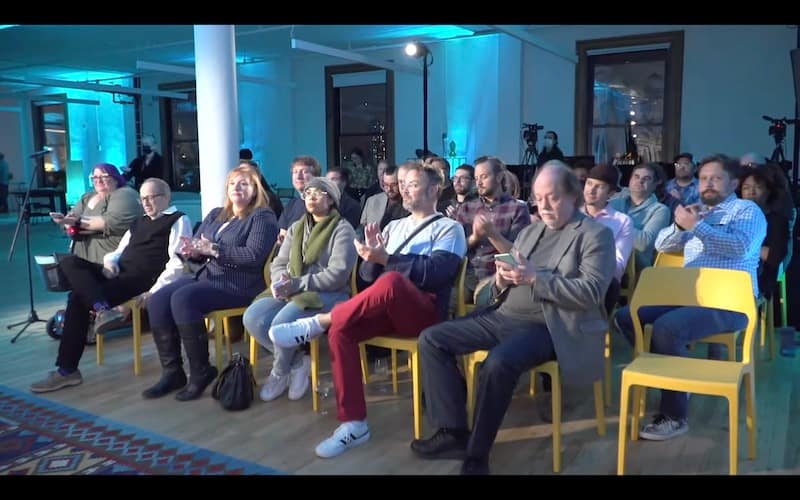
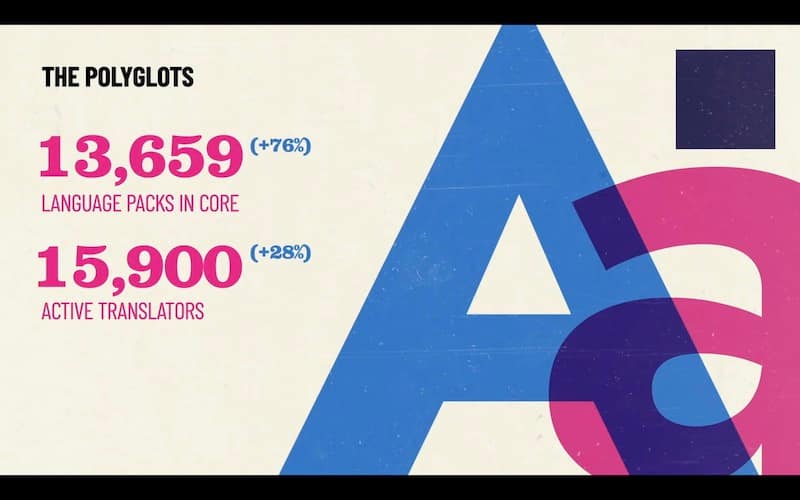
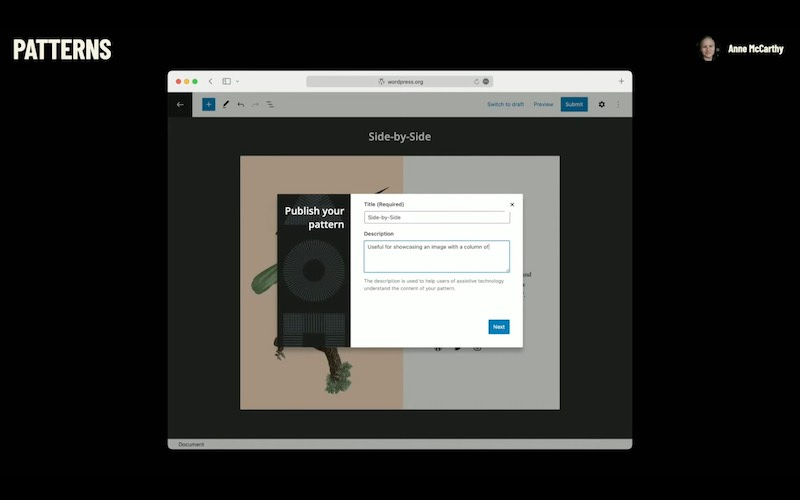
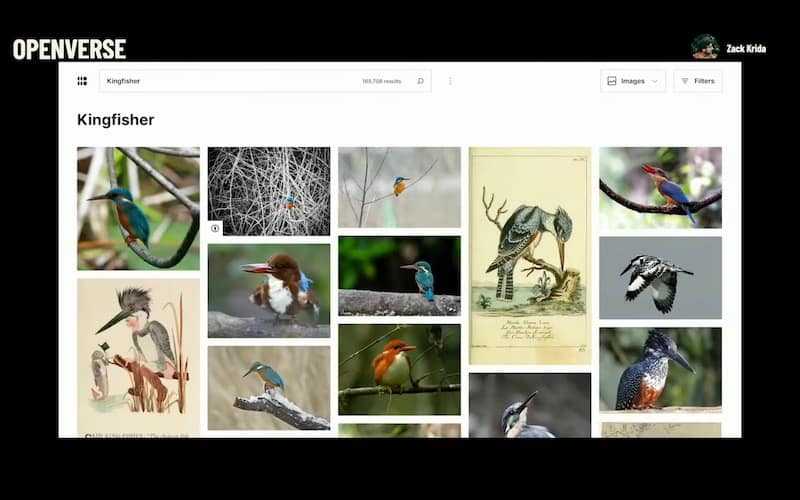
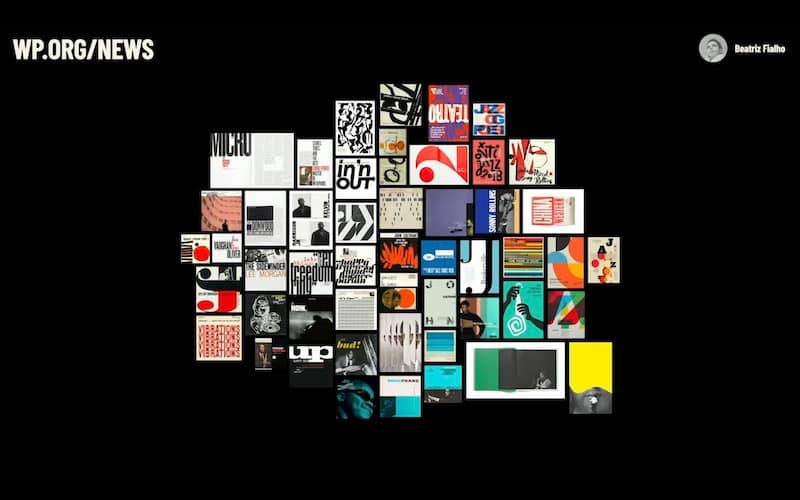
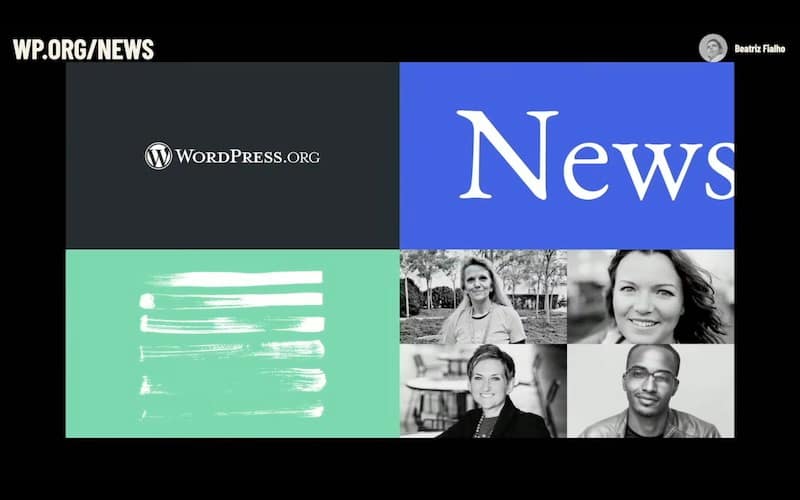
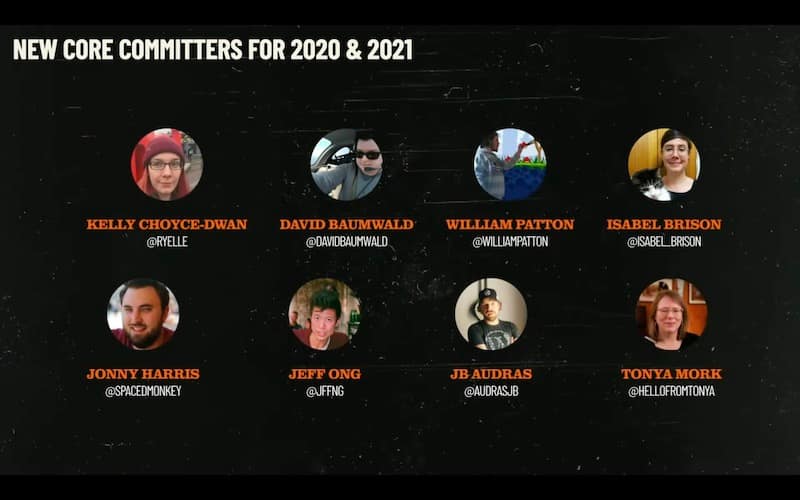
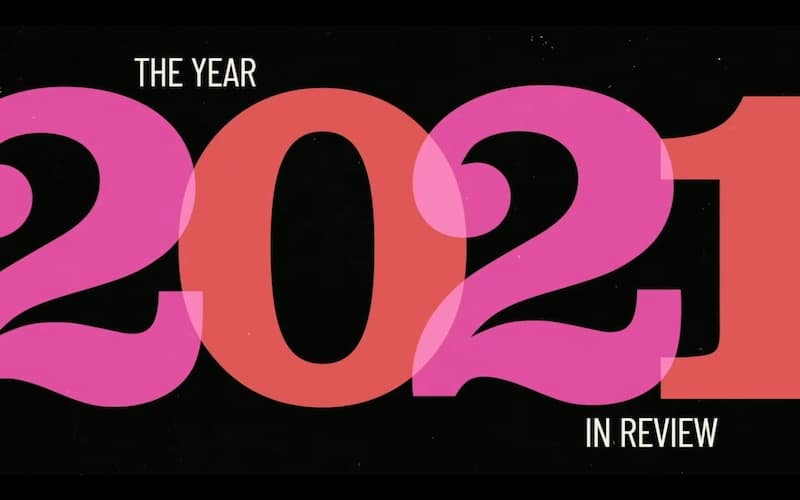
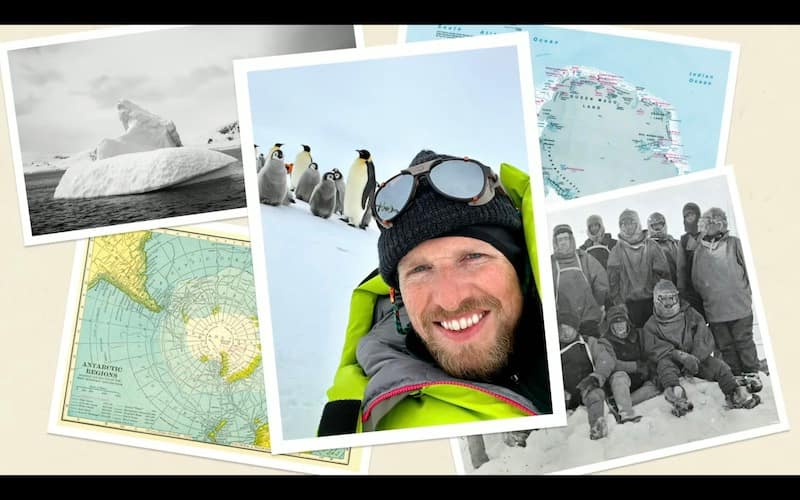
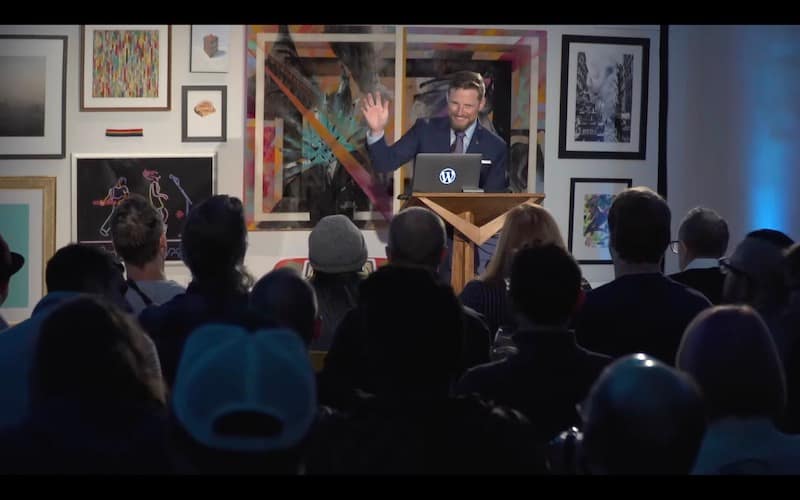

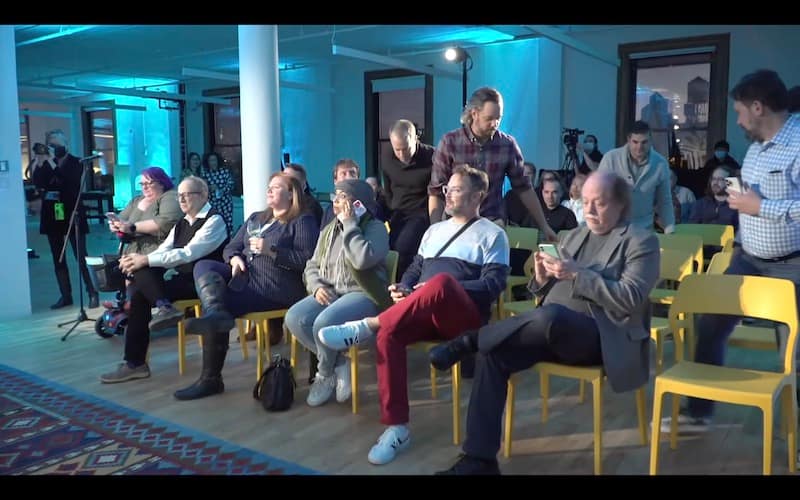
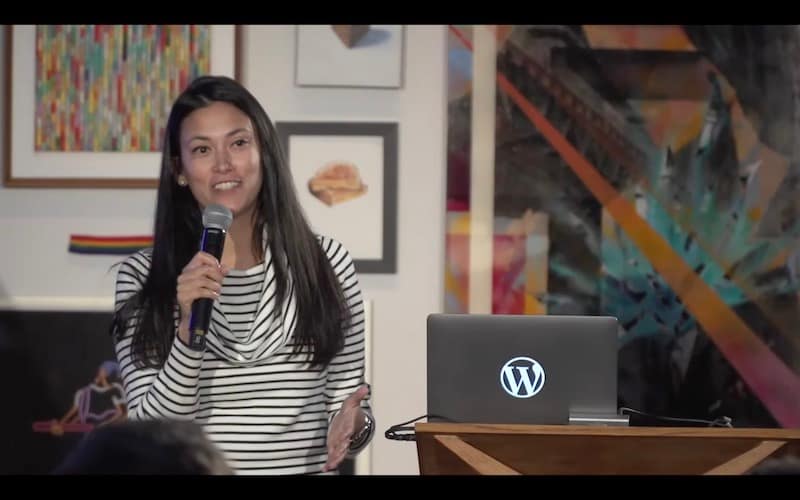
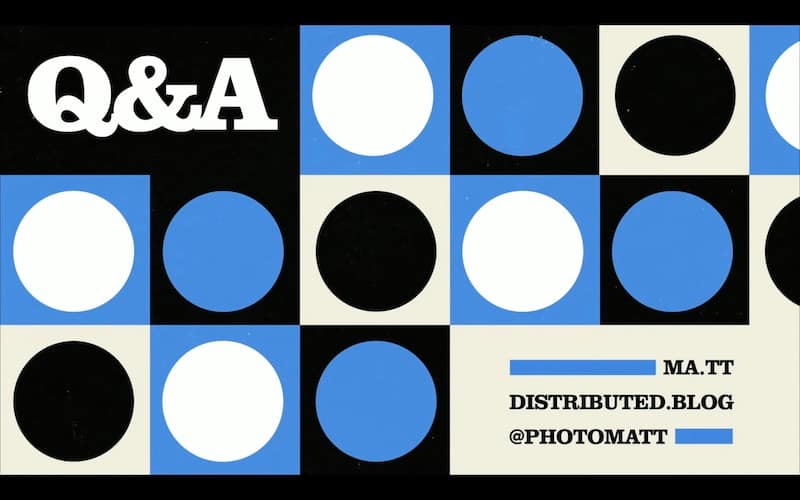
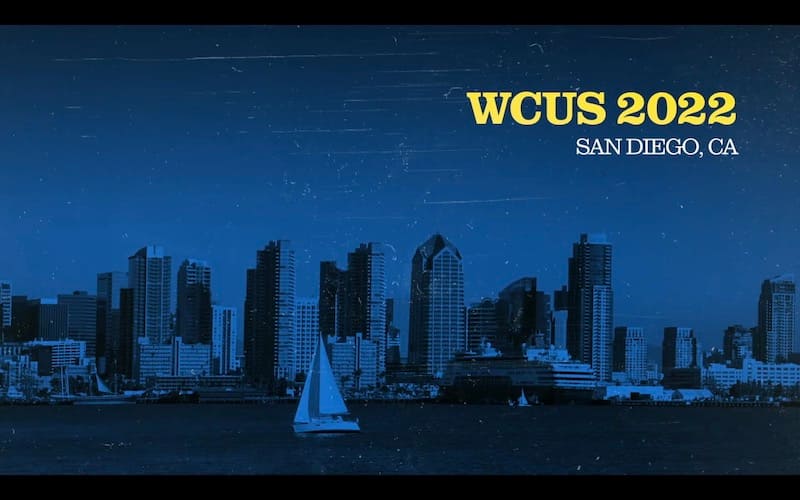
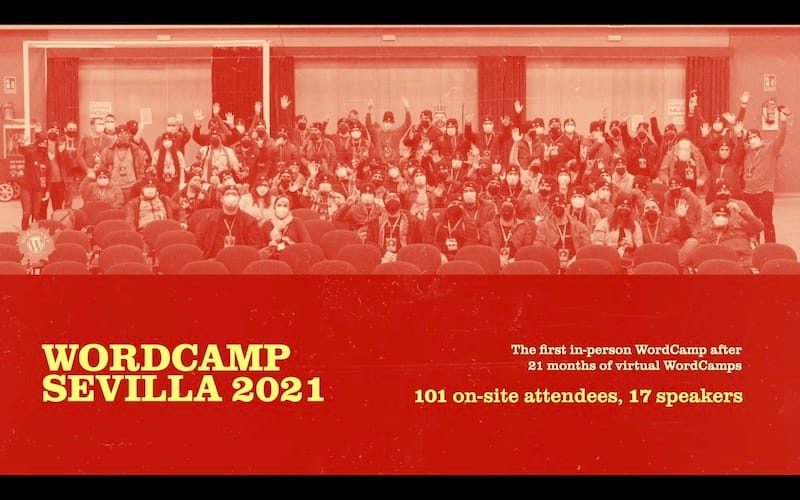
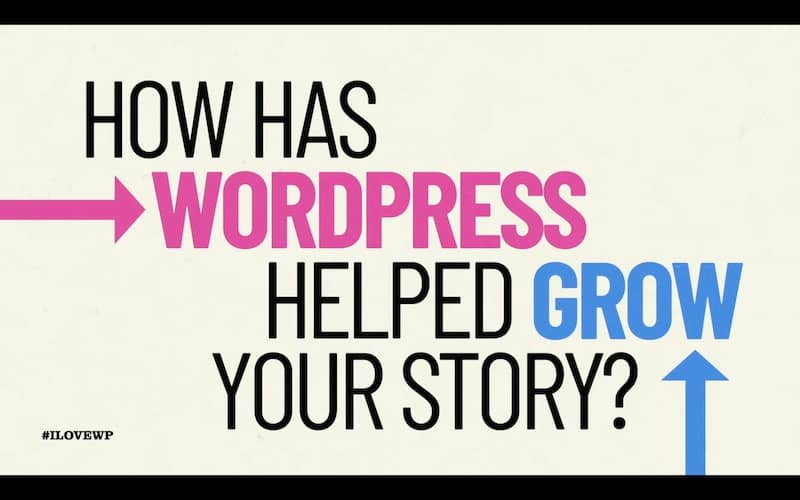

Episode Transcript
oh, but really, really, um, welcome to everyone. Thank you all for being here. This is very exciting. Um, I am excited to see all your faces. It’s been many years since I’ve seen some of you, um, in case you have not noticed we are changing our hashtag this year. It is state of the word written out, but remember to do your capitalization for people using reading.
Assistive technologies, readers, screen readers. I got it. Uh, there is going to be a Q and a portion after this. It will be here from our live audience, but also some folks at home. Um, uh, he’s the at-home portion for us right now. So if you have any questions, get them ready. If you’re here, there’s a microphone here that you will be able to ask your questions at.
Or if you are watching at home, you can head on over to the YouTube embed of this, uh, live stream. And we are monitoring the chat there for questions as well. Um, that is all that I have to say. Um, and I think that’s probably all that you want to hear from me anyway. And so tonight giving our annual state of the word where we talk about everything we’ve done this year and everything we hope to do next year is of course WordPress project.
Co-founder Matt Mullenweg.
Wow. Wow. We’re really here. So, uh, welcome everybody. And I’ve been told to ask if folks over here can just move up one row. Um, if you don’t mind where we’re going to try to fill out the front and bed that. This is so exciting and so honestly fulfilling to be together again. Oh yeah. I guess everyone’s starting to cascade
for those joining us live. We are here in New York city. It is, the sun is setting. We’ve got a few invited community members from all of the world. Thank you all for coming.
We had people joined by plane, train and automobile. How long was the train ride? Two and a half day train ride to get here. So that is definitely the most interesting. I actually am also came a, probably a two and a half day trip, but all the way from Antarctica. So if you notice a little bit of a raccoon tan, that was because I had very strong sunglasses and I guess not strong enough sunblock as that’s me have some penguins.
And while there I read a lot of books and learned a lot about Antarctica and one that particularly stood out actually a leader who’s inspired me for a long time was Ernest Shackleton. And I knew a lot about his endurance journey where ship crashed or got stuck. And then they sent back. Basically they saved every person who was on that journey, but a story I didn’t know about him, which I learned about was.
Journey’s to the south pole. He turned away only 97 miles away from reaching the pole, which is pretty darn close if you’ve ever tried to get, I think I flew, like if you add it all up, like almost 7,000 miles back. So the turnaround of the last 97 and actually as this was happening, as I was reading about this, I was thinking about the version 5.9 release.
So you might know that today was a scheduled or right around today was the scheduled originally scheduled date for the WordPress 5.9 release. And we made a very, very unusual decision for WordPress to delay that release for about a month. So we’re going to release it in January, but it felt like we were so close and we decided to turn around.
And, but very, I believe it was entirely the right decision as it was for Shackleton. He made it back alive. I think his saying was better to be alive, donkey than a dead lion So we don’t want full site editing, which is coming in 5.9 to be a dead lion But it was also I think, a moment for reflection, because of course we talk about and the philosophy part of WordPress, how deadlines are not arbitrary and whatever we were making that decision, which wasn’t that long ago, I just delayed the release.
I wasn’t thinking so much about what’s happening right then the kind of month before. But what did we do? 3, 4, 5 months before. So I think it’s an excellent time to reflection for reflection. And actually some of this has started on Anne McCarthy’s blog. We started talking to her comments section, uh, in public, of course, has everything happens on WordPress about what we can learn from this that we can start putting into effect, not just for the release coming next month, which will be fine, but for the big 6.0, which is coming next year, I’ve even heard some rumblings that 20, 22 might be a year.
We aim for four releases instead of just three, but let’s not get too crazy just yet. Where are the beginning of the state of the board? Not the end. Um, uh, we had a very, very exciting 20, 21 and really it was quite fulfilling to be part of it after such. Well, it’s still part of a very challenging time in humanity.
One of the things I want to highlight first was our eight new core committers, both the core and themes. So let’s do a round of applause.
for Kelly, David, William, Isabel, Johnny, Jeff JB, and Tanya. I’m so excited, uh, that they now have ability to change the code that runs 43% of the internet. Um, another update is we, we focused a lot this year on wordpress.org. And, uh, one I’d like to highlight to start is around the new sites and this, we do have.
Some guests audio. We weren’t able to get people from around the world all to New York, but we have some audio that working in the redesign of the news page in wordpress.org, the general inspiration was last year’s state of the word presentation and overall jazz aesthetics, because the blog doesn’t have much imagery.
We took some time to explore shapes, typography, layout, and colors, to get a successful result that expresses the playfulness of jazz.
I really designed this. Might’ve been like WordPress 3.0, so it was exciting to start to loop back to some things and wordpress.org. Another thing we were able to launch on wordpress.org was open verse, which I swear we named before Facebook decided to pivot
open versus a surgeon openly licensed to search for an image, download and put it on your site,
give attribution to the creator
and that’s it.
So open verse is part of we’ve started to expand how we think about our mission from just being about the code and the tools to allow people to publish to actually what they’re publishing. So open verse was originally called creative common search was actually part of the creative commons, nonprofit, but sort of cost and running it’s.
Um, they decided they were going to shut it down or put it somewhere. And we found a home for it on wordpress.org, which I’m very, very excited about. We have over 600 million creative commons images licensed through it, and we’re going to have audio coming up at the end of January. There’ll be 2 million audio clips there.
And, you know, applying open source to content is a little tricky, but the creative commons of course has a long legacy there, I think 20 years now. And so we’re very, very excited to continue carrying that torch forward, to create as much open content on the web as possible. Another thing we got on WordPress dot of is the patent directory.
The word pattern directory, similar to the plugin and theme is a site that features submitted patterns that anyone can copy and use with WordPress 5.9 we’re preserved members will be able to sign in and submit patterns, be added to the directory. As you can see in this flow, this is a huge opportunity for desire to contribute to the overall WordPress ecosystem, without having to know how to code plugin or a theme.
If you’ve used patterns and WordPress lately, you know, they make it easy to add uniquely outs to your site quickly. How imagine helping others create beautiful content from testimonials, headers galleries, and more with your own. Once submitted patterns will be set to pending, and you’ll be able to see all your patterns in one place.
So maybe patterns can also be resized around the page to give a better understanding of how our pattern will be displayed at different sizes. And since parents are really just texts, they can be copied to devices, clipboard, just like any other texts, just paste the pattern into any block it, or incorporate it into your site.
Catch that. So the copy pattern button on wordpress.org, you just press that. Then you go over to your Gutenberg paste and you get whatever was there. So this is a very, very exciting way, you know, with the first version of Gutenberg, the phase one are really creative as all the fundamental building blocks.
Um, almost like, uh, that you can build pretty much anything out of much unlike, uh, Legos or, you know, strands of DNA. Uh, but with patterns, we now have the ability for really anyone, whether you with no-code or low-code, uh, to be able to create and share complex, uh, presentations of what you can do with.
Another thing. I was really, really proud about our progress in 2021 was what we call the polyglots. If you don’t know, polyglot is a word for someone who speaks a lot of languages, I speak barely one. So these folks always impressed me quite a bit. Uh, we had a 76% improvement and the language packs that are being created for plugins and core.
And we’re up to now 15,900 active translators that work we’ve been able to take the number of locales that WordPress has translated to at time of release to 71.
71 that could name 71 languages. It’s pretty impressive. The other thing we’ve been able to do is for those who don’t know, our translation system is actually powered by an open source project called Glock press and in glob. Uh, we’re able to add a lot of new projects, including open verse, learn WordPress, the pattern directory and patterns.
So these are now all part of what we’re translating open verse, which we just heard about is translated into 17 languages already learned. Our WordPress is in 24. Patterns are in 24 and the patent directory is in 25 different locales. So in our mission of democratizing publishing, of course, we’re not doing it just for people who speak English and this presentation, everything we’re trying to translate into as many languages as possible.
So this is widely accessible as possible. And speaking of that, there’s also been some exciting developments around diversity and WordPress. So we created this new diverse speaker program and speaker support program that have had 135 participants go through it so far and 66 cities and 16 countries around the world.
Uh, this is, uh, basically a program to help people who might not have spoken at a work camp or to WordPress event before, um, basically get some guidance on how to do so. Uh, they already have the skills and everything like that. This is I would love to grow this number quite a bit. And if you would like to get involved in one of these trainings in the future, the URL Joseph is make.wordpress.org/community.
Make that wordpress.org/community and the magical WordPress Twitter account. We’ll put that out shortly. Probably the correct answer there. Some of these slides were changing until literally minutes ago, part of making WordPress more accessible as well as about the learning. And so last year I talked a lot about learn.wordpress.org, which is this idea of how do we teach more people the power of how to learn WordPress, teach them how to fish.
We’ve had 186 social learning spaces, which are basically like cohorts of people going through the different classes. We have 73 workshops and 70 different lesson plans that teachers college professors, elementary school teachers can adopt and teach to their students. This is all available in 21 languages.
And so far, we have two courses that people can go through, which are like full collections of lessons and plans and things like that. This is pretty nascent as well. We’ve only had about a thousand people go through through this so far, but as the content gets better and better, as it gets iterated on the people working on this kind of improve it with every single iteration.
So when a class goes through, they say, okay, this was easy to understand. This was harder. And of course it all gets translated. If you are looking for a way to contribute to WordPress, by the way, hosting a workshop is a very, very easy way because it’s just a few hours of time to be there with folks. That are attending the workshop.
And certainly if you’re listening to this, you have more than enough knowledge to be able to share with someone new, to work breasts, as this grows and develops, we’re going to make it a much more prominent part of what, what you see when you visit wordpress.org. Because so many people coming there who might put their powered by WordPress or proudly powered by WordPress on a site, um, I’d be curious and learning what it is.
And so I think this is actually one of our biggest opportunities to just expand the knowledge of really what WordPress is, and also define to a new audience, what WordPress is through these courses. We had a pretty good year for growth as well. So in the distribution of WordPress, and I’m proud to announce that according to w through texts, we now power 43% of the website
We also had, uh, we doubled the number of themes that were being added to the directory, huge amount of work there from everyone who works on the moderation theme directory. And we had the most downloads of the software ever. And this isn’t including updates. This is fresh downloads of the software. Uh, so pretty much by every metric, it was a bit of a, a great year, which is impressive because like many online services, we experienced a big COVID bump.
So to actually lap everything that happened last year, it was pretty great. But that 43% and perspective it’s actually 43.1%, but we went from 4 39 0.1 to 43.1 in the past year. And this is a list of the other top five. So, uh, the number two right now is Shopify, which went from 3.1 to 4.4. Wix is number three, which went from 1.5 to 1.9%.
Squarespace went from 1.4 at 1.8%. And the only other open source project that’s still in the top five is Joomla, which actually shrunk from 2.2%. 1.8% in general, the CMS has, are not taking market share from each other. So what we’re taking market share from as a w three texts calls nun, which is, uh, basically websites that are running a not discernible content management system, which most likely means it’s custom or something that was kind of bespoke for that site.
So it was seen as a huge shift. This used to be over two thirds of sites, uh, running some sort of custom CMS of the sites and the top 10 million, a huge shift of them were running to CMS. But one thing that’s concerning to me here is the top three used to be WordPress, Drupal, and Joomla, which are all great because we’re all GPL.
So as those grow, it means that there’s more and more open source on the web, but we’ve seen these three proprietary systems pass up all the other open source. Other than WordPress. Now, the good news is WordPress is still growing pretty fast in this market share analysis. We actually grew to entire waxes this year, which is a new unit of measurement.
And to put that in perspective, we’re still 10 times larger than number two out there, but this doesn’t happen for free. And we shouldn’t take any of this for granted. Um, there are in the history of software and certainly the internet. There are many services that were once dominant that now we need museums to remember what they were so to maintain.
And in fact, it’s celebrate this growth, which it did in 2021. We really need to one stay humble and stay close to users and iterating the software as quickly as possible. One thing that’s been in the news quite a bit lately is also security. And I’m proud to say it was a good year for WordPress security.
We had over 30 people of which a third of them were first time contributors contributing security patches in our security reporting system. 71% of the reports ended up being closed as not applicable and about five points has produced look at. So this means that someone had reported them already.
Security is a process. Anyone who says they are perfectly secure is tempting fate, but as a process and the investments that we’ve put into. Um, and basically in partnerships with the host where we work with both hosts, NCD, and CloudFlare, to whenever we are aware of something, we actually work with them first to protect WordPress sites often at the network edge or at the host or data center edge.
In addition to being able to push auto updates to the vast majority of WordPress sites in the world. And this is incredibly important as we go forward and continue to grow again, security is a process, not an end point. So our ability to be one of the most secure platforms in the world is a hundred percent a result of how much we’re going to be able to update sites because humans are fallible something.
I fundamentally believe all our code is written by humans, as far as I know. So that means our code is fallible. So that means as somewhere in the WordPress, many hundreds of thousands of lines of code, that’s something that could be improved or some sort of bug, which might have a security implication.
So it’s really key. There is not is how we’re going to be able to update it. Uh, in terms of updates, changes, improvements. We also that a lot of the block themes. So this is last year. We only had two of these in the world. Now we’re up to three. Now we’re up to 30. So we have a 10 X, but this is nothing compared to what it’s going to be in the future block themes are basically themes that are built from the ground up to be customizable entirely with a Gutenberg block editor 2022, which is the new default.
Which we’ll actually launch in 2022 with the release of 5.9 uses all of our new tools, including blocks themes about Jason and the new design tools. I’ll talk a little bit about later and a little bit next, uh, in this presentation, we also finally got to one of the, uh, as you know, like there’s a limited number of developers for WordPress.
So we kind of work on different things at different times, which means sometimes there’s parts of it that haven’t had attention in a while. And if you have recently updated widgets in your sidebar, you might’ve seen one of those parts, but coming up or, or actually now you can now manage widgets with the block editor that’s purpose 5.8.
You can now manage your widgets box, allowing you to visually edit more parts of your site. This is actually really cool, kind of showing off how deep customization can go with a combination of tools. Starting with layering two blocks to create a neat effect. As you can see, be able to use blocks opens up tons of new creative possibilities from no code mini layouts to tapping into the best library or third grade blocks to create content.
That’s the focal point change. Keep in mind that you will have the same controls. Nicole started perfective placement and the opacity go a step further and how to do a talk filter to create an even more compelling experience. Enjoy the familiar experience of drag and drop to get the details just right before saving, checking out your awesome creation on your site.
That was a little bit of a. Widgets and blocks demo, but also some really cool Gutenberg stuff that we’re going to talk more about later. The other block, maybe the most complex block ever created is called a query block. So imagine WP underscore query. Now a block Akash and 5.8. You can now easily display your posts and pages with box.
As you can see here, this advanced block comes built in with various layouts that you can switch between till you find the one that you liked from there. You can go a step further to customize your featured images, thanks to new design tools coming 5.9. It includes dimension controls and various scale options.
So you can tweak it to your heart’s content. Again, that was like a pretty fancy demo. I’ll mention a few things. Now you got to the block and navigator, which is a very exciting way and accessible way to navigate through blocks. And I dunno if you saw it, but what Anne was doing in that demo, when she was changing, the size was actually, she clicked and then moved her mouse up and down, which actually increases it.
And finally, one of the things that we’re still not sure how to describe exactly, but we’re very excited to be part of the design tools of WordPress is duo tone filters can be used in even more places like the featured image block. It’s a great way to bring character to your photos and perhaps in the future, your videos, this means you can transform your images without touching any code or photo editor.
If you look, I’m going to try to go back to the beginning of that. She might start talking again. But if you saw those images were all kind of different colors and they didn’t really match what duotone allows is imagine duotone being like gray scale, but instead of just going between white and black, you get to choose the two colors that it goes between.
So essentially what this can do is create a really cool, consistent aesthetic throughout all the images. And what we’re having here is, is actually being used in the query block. So, and, and updates one of them to kind of crossfade the highlights or shadows, which you can choose. It actually updates every single post in that block.
So that’s why they all in outlook cool and consistent. This is a pretty cool tool. It’s hard to explain, but really fun to play with. So you’re going, uh, get, uh, one of the latest block themes, including you can download the 20, 20 tool one from betas. Oh, we got a little feedback there and play with this. It is really, really cool.
And another cool thing is that themes can, of course define that a fault gradients that are suggested through themes that Jason,
all of this is possible because of literally thousands of people that contribute to WordPress. So just like we did in the beginning, thinking committers, I do want to thank and highlight at the very least the faces, if not all the names of some of the contributors to our last releases. So the 5.7 release was named for the amazing jazz bassist Esperanza Spalding, and we had 481 contributors.
Of which 24% were brand new. This is all other faces.
5.8 was named for the virtuostic pianist, our Taten. Um, one of my favorites check out Tatum recordings. They will blow your minds. And, and that we had 530 contributors, again about 25% new. Uh, and this is all of them that, that, uh, and for 5.9
your face could be up here still. I mean, not right now, but for 5.9, we’ve already had 580 contributors, the core software. But if you watch your avatar up here, uh, for the release post, uh, there’s still a few weeks, so you can test submit patches or otherwise contribute to WordPress 5.9. Um, and this is the folks who have already showed up.
So cheers to them.
Contributor to show up for all sorts of reasons. It’s to give back to the project that helped them send out work and socialize with like-minded people to support and learn from entrepreneurs and other professionals to gain valuable skills that are really, really useful work alongside some of the best developers in the world.
And if you have another reason, drop us a tweet. So we’re using the state of the word tag, but we’re also gathering lots of feedback during this, during this live stream. And for whoever’s watching this later, so use the state of the word hashtag, and we’re going to check that out and actually highlight some of them on the blog later block editors and visual editors have been around for a long time, but one of the things really unique about WordPress and one of the reasons it’s taken us so much work to get to where we are today with Gutenberg is we are committed to doing this in a web standards based way and a way where the code is very, very clean, which also means it’s more accessible and highly performance.
If you’re having a look up some of the benchmarks of Gutenberg versus any other page builder generally has much higher scores and much lighter code. We are on the cusp of finally coming to five point. It looks like an apple slide, right? It’s kind of cool. It’s got duo tone, improved gallery, which you can drag and drop block spacing with a single control border bark, flexible layouts, themes, and patterns.
You can edit your site logo easily, including make the logo bigger. Some designers have heard that someone got that one, the list view, which is super, super cool. It allows you to navigate between relatively complex hierarchies of blocks, very, very easily. And finally, the integrated pattern directory, which is probably the easiest way to essentially contribute code to WordPress that has ever existed.
We’ve got a few demos here of what’s in 5.9, and these are honestly some of the coolest demos we’ve ever shown in the state of the world. The 5.9 release marks the introduction to the next generation of themes that allows greater customization and simpler building themes can now be created entirely with blocks, meaning you get all the familiar editing tools and the same blocks you use when creating posts and pages to allow you to edit all parts of your site, including your header and footer.
All the templates from the theme can be edited using the block editor like the homepage, your blog archive, or single pages. One to zoom in on just your header, easy using the top toolbar, select your header and switch into a dedicated mode to do exactly that. Once that you can explore the new navigation block that comes with built-in responsive and keyboard accessible.
We’ve over 30 theme blocks, the ability to customize and create every part of your site has never been easier and do it in a fully responsive ways to just shop with moving from desktop to mobile views. Now I’ve got styles, introduce a quick and intuitive way to change all the visual elements of your site globally.
From topography to colors, to various aspects of how blocks appear. All of this allows you to achieve distinct looks by modifying the style presets. Here’s an example from the 2022 theme showing how drastically different the theme can be with tweaks to the styling options. You can change anything, but there must always be birds.
It’s called the hatchery thing. I mean, you’re kind of stuck with it. And then finally we improved how patterns work patterns can be used to create different sections like headers and footers in a few clicks. You can make a brand new header without changing your theme. Open the inserter, switch to the patents tab and select explore to see what’s available.
All these new features help you get where you want to go faster
time and time again, as we look towards the future of WordPress is probably my favorite slide, um, or finally achieving one of the things that WordPress set out to do. Uh, 18 years ago now I feel a little old saying that, uh, I think starting well, actually now I’ve worked on WordPress more than half my entire life.
I helped to work on it the rest of my life, if y’all still let me.
And this is why we started the Gutenberg project. When we first introduced Gutenberg a few years ago, all the way to when we first showed the first mock-ups and ideas of it in 2013, we said this was going to be the foundation and what the new versions of Gutenberg was, what the new versions of WordPress were built on what our next 10 years would be.
And, uh, not only are we enabling folks to express themselves and ideally uniquely on the web, unlike the cookie cutter that all the social sites try to put you into the cookie cutter looks, um, we’re doing it a way, which is standards-based interoperable, uh, based on open source increases the amount of freedom on the web, uh, which is very key, certainly to me and the most important thing, uh, that I work on.
Um, as we’re renewing our commitment to the open web as a whole, it’s also been kind of an exciting time, just be following technology news, because a lot of people have been talking about web three and the decentralized web. Um, I’m not gonna dig super deep into defining web. Because I don’t think anyone really knows what it means, but it is a buzzword it’s now being talked about on NPR wall street journal has being talked about in the context of global standards.
And to me, what, what three embodies is two essential ideas, decentralization and individual ownership. And for me, those are both things that WordPress is both well poised to be already doing and to continue doing for some time to come stuck about decentralization and ownership, WordPress in specific, but open source in general, you can participate in it from anywhere there’s 30 of us here, but the WordPress community, as we saw is thousands of thousands of people, 15,900 translators.
You can host a site anywhere on any infrastructure that you like. You can create your own forks or WordPress. Any person here could create a penguin press or whatever you want to call it, take the code and take it on new time. And you’re really only limited by your time and creativity, which is also an aspect of at least my favorite website projects.
The other key is individual ownership. So in WordPress as with some of the best web three products, you own your own content, the code, everything to run it without any payment to WordPress, you can move your content from one site to. Easily. In fact, WordPress is export format has become the de facto standard for all of their CMS system.
So even like a Squarespace and kudos to Squarespace for doing this supports, when you export from Squarespace, they actually export in the WXR w XR format, which is basically just something we did like 15 years ago, which is take RSS to an add on a few extra XML fields to create a standards-based WordPress export format.
And you have the four freedoms of open source and the GPO, which allow for ownership for every individual, including every person in this room, or every person watching this owns WordPress, just as much as myself or Mike Little do and it individual individuality of expression. Uh, keep this in mind. And I would say apply the filters of everything in web three, the NFP space, et cetera.
There’s been incredible amount of innovation. I think this has also attracted some hucksters and some folks kind of hustling things that aren’t truly open. So you all are very familiar with WordPress. So for every project, which is asking for your money dollars, or for you to pay the cost of a house for a picture of an ape, you should ask, does it apply the same freedoms which WordPress itself does, and how closely does it Hugh to and apply to increasing your individual agency and freedom in the world?
Ownership has also been a fun topic in WordPress this year, because we’ve had a lot of acquisitions.
There are 42 logos and slides on this logos on this slide, which represent acquisitions. I was able to track for those on the live streams. Something just crashed. We don’t know what it was. Hopefully everyone’s okay. Over there sites like post status has been a joke number of days since acquisition constantly reset to zero.
And I spent a lot of these and I probably miss some in his logo side, so I apologize, whatever I missed. Um, so some people have been saying that there’s been some sort of unusual trend in WordPress or something crazy happening in our community. So one thing I like to do and the state of the words as also put whatever we’re doing in the context of what is more broadly happened and the technology and world ecosystem out there.
So I’ve got a few slides to share to you technology and macro economic trends. So this from definitive is the number of deals and M and a happening in just the technology space. So you can see over there, big roll up. It doesn’t look like almost anything that happened before. So maybe 2000, 2001, I don’t have any comments there.
Um, but this is going to well over 10,000 transactions, uh, and just the first nine months of 2021 alone. And if you were to broaden it to the global M and a landscape, not just technology, we’ve seen over 45,000 different acquisitions. This is up over 24% from last year, which is already a huge year and represents $3.6 trillion of different mergers and acquisitions.
The United States in particular is leading the pack and the stats there show 139% increase year over year from last year, this is driven by another trend, which I found utterly shocking to learn and understand, which is a capital inflows to stocks, or is it just this, the chart says, come and get them while they’re hot.
Um, I’ll counter that with a Warren buffet quote, which is to be fearful when others are greedy and greedy when others are fearful. So basically what this is showing is dollars and billions of money moving from other assets in the public equities. So you can see, for example, kind of, oh two through oh seven, it’s kind of plus or minus 10, 20, 30, $60 million go in and out of.
We had some bumpy years and 13 and 17 with 252 and $295 billion coming into public equities. We’ll look at it. Why that graph so far, the estimate for 2021 is, let me make sure I get this correct. $1.6 trillion of capital inflows to public equity markets. So if you see valuations going crazy, mergers and acquisitions going crazy, I believe this to be the root source of what’s happening in the broader economic market.
There’s obviously a source before this. I will not venture to guess what it is around stimulus or governments or something like that. But this also my point here is that these trends are not unique to work for us. So our 42 deals is not that bad compared to what’s going on in the world. Um, there’s also been something that’s been talked about in context of this, that the larger the company, the greater of the influence they are on the WordPress world.
And I would like to counter that as well and invite more companies to contribute. So this is a graph for WordPress 5.6 of the contributors. Um, you can see one of the biggest bubbles on there is a company I always like to highlight and say the word. Yoast is three times larger than a few others. They’re clean some hosts like GoDaddy WP engine, even though it has one fifth in the case of the WP engine and like one 80th in the case of the GoDaddy number of employees.
So the impact the company has on the future of WordPress is not at all related to the size of the company. Uh, what I would love this graph to look like in the future. It’s more like this. There’s no reason that if we really take to heart, what’s made us successful so far that we can’t get more companies participating in the commons of what’s happening.
Uh, so when a company benefits from WordPress, when they put something back into the core, whether that’s your translations community volunteering or co code as this particular graph is representing, um, it kind of ensures that it’s something left in the future for WordPress it to be there. Um, you can’t run Wix or Squarespace on GoDaddy.
That’s an example. Uh, so what I really feel has gotten us here is the spirit of we, what we call, um, five for the future, which some of you all familiar with. Um, but I would like to expound a little bit for those who are maybe new to hearing about this or in other communities, because when we hear about things like you, might’ve seen this, a security bug that’s going around was a library called log for.
Who’s ever heard of log for J before two, three people before Twitter recently, but it’s caused as very real RCE, which stands for remote code exploitation, vulnerability, and basically every major internet service in the world for trillions of dollars of market cap from apple, the mine grafts have been impacted by this.
And gosh, I wish I had a slide for this, but have you seen the X, C K XKCD graphic? We’ll tweet it out later. Or maybe now there’s this fun comic. One of the coolest comics in the world, by the way, that shows like a very complicated structure. And this is like the global economy and there’s a one little thing holding it all up is an open source product maintained by three random people in Missouri.
That’s kind of log for J fortunately, we don’t have this problem in WordPress because we have tons of folks sponsor, and we’ve been really key about fire for the future, but it turns out that the folks working on law for two, there’s like three people making the person who’s fixed the bug. So they got a sponsorship of $16,000 per year fixing these sorts of things.
So how do we avoid this and WordPress, what have we done? That’s made us successful so far and what do we need. Uh, pay even more intention to in the future as more and more companies become commercially successful, as amazing businesses are tapa built on top of the WordPress ecosystem as well. Post get millions of millions of sites, customers paying millions of people, paying hundreds of dollars per year, running WordPress as their CMS.
So what five for the future is it says that basically the idea is whatever you get from WordPress, take 5% of that and try to put it back into the comments. I am familiar with the concept of the tragedy of the comments. It’s an old economics paper from actually forever ago. So they is able to use with sheep.
And the idea was if, if there were a lot of different shepherds, I guess, was sheep and there was kind of a commonly owned area of grass and the countryside, but didn’t really belong to anyone. If all of the shepherds had their sheep eat as much of the grass as possible, or as much as the sheep wanted, um, the grass would die.
And this thing which belonged to the community, the commons would deplete because of essentially over utilization by actors acting in their own self-interest short-term, but against the self-interest in long-term, uh, some of you might think this parallels to this of climate change or other things that are happening in humanity, um, and the digital world, at least I think it’s possible to have an abundance of the commons.
So the more people that use a program like. The better. It gets in so many ways more bugs get reported, more translations happening, more, more plugins, get developed, more themes get developed. And so the more people that use WordPress WordPress doesn’t get any worse for any of you. In fact, the more people that use it, the better it gets.
But part of that is some percentage of the people who essentially directly benefit from WordPress, putting something back into the comments, fertilizing the soil, planting some more grass. However you want to think about it. Have you ever seen the take a penny, leave a penny, a little things. It does still exist, even though we still have pennies know, they’ve been trying to get rid of them for awhile.
Funny story. Actually, I used to participate in his macro economics competition because I was a really cool high schooler. And I got to meet at the time, the treasurer of the United States because we won the competition a few different levels and I’m a high school kid. And so I apologize, the name is escaping me right now, but the treasure of the United States, I was like, cool.
You know, you’re the treasurer, what’s the thing you most want to do. And her answer was, get rid of the penny. And that was amazed. So the treasurer of the United States, if you don’t know, actually signs all the dollars, all the dollar bills, I mean, not literally, but if you, if you looked at a dollar in your pocket, you would see was a virtual signature or a printed signature from whoever’s the treasurer, but apparently pennies cost more to produce than they do to you.
So it’s kind of a funny thing that we still have pennies United States, at least weird aside,
uh, commons, sheep, pennies
that y’all know where I was going with. That it’s been a while since I talked to in front of people,
um, five for the future is we launched this in, I think 2014, where we first started talking about this, but in reality, it’s been embedded in many of the companies, including Yoast as an example, and automatic that contributed WordPress almost from the very beginning, because we had this sense that what we’re creating together, um, wasn’t something that happened for free.
That would happen automatically. It was a freedom that required the diligence effort of all the people that were putting in their free time and their hard earned, uh, talent into this thing that we were creating together. And not unlike the Wikipedia could become something that’s far greater than the sum of its parts.
A WordPress can not be written by one person or even one company. The quality, the robustness, everything of the software is. Of everyone who’s contributed contributed to it, not just in the most recent releases, which we highlighted some of those, but all the way, going back, even the predecessor to WordPress B, to every line of code, there represents a little bit of someone putting a penny and take a penny, put a penny, a jar.
I have studied actually in many platforms over the years, whether it’s open source platforms or successful sort of desktop platforms like windows. And there typically tends to be this 20 to one ratio that if the ecosystem is benefiting kind of 20 times more than whatever’s in the center of that ecosystem, it works at the 0.1 whatever’s in the center of the ecosystem.
It takes more than that. Kind of all breaks down as two recent examples, they used to be something called a Facebook platform. The Facebook platform mostly benefit to Facebook. And when a company got too big on top of it, often Facebook would change the rules or pull the rug out under whether that’s a company, zinger, others that were benefiting from it.
If you go all the way back as you remember the release of windows 95, wow. I’m impressed. So for those who don’t, I’ll paint a picture, you know, that people stand in line to get a new iPhone. They used to do that for a box of windows. Which came in on a CD and you’d wait at like a best buy or something.
And I think rolling stones recorded a song, really release a windows. 95 was basically like a world event that was covered by every single major media and everything. And, and reading books written at the time and media. One of the funny things I found Microsoft saying was that for every dollar that windows would make $20 would be made in the windows ecosystem.
This ratio kept coming up over and over again and different platforms I studied. And so that’s how we got to the five for the future. It’s basically a one to 20 ratio when the 19, depending on an account of what is and the core versus what is happening in the community, the WordPress community is larger than ever.
Uh, some estimates put it at over $10 billion per year. So how do we get to that 5% of things being put back into the core? The beautiful thing about five for the future is can be unique if you’re an individual that 5% put back into the core of a 40 hour work week is two hours a week. So two hours of the 168 that you have in a week, put it back into something with core.
And we’ll talk about it. Some ways you can get involved and contribute, not only makes you part of defining the future of the web and the future of the open web for humanity, but gets you contributing back to this thing that if you hope. It’s still relevant. If I’m here with much grayer hair, 10 or 20 years from now, given the state of the word, hopefully a suit still.
Um, it’s because we all put something back into it and we all work together beyond any individual or any single company coming together to create this thing we call WordPress and the foundations of what we’re doing today. Also set the stage for what’s going on tomorrow. It’s funny because actually, you know, WordPress is 18 years old.
The idea of democratizing publishing is probably 17 years old, came on pretty early in our lifetime. Now every single startup raising money talks about democratizing. They want to democratize ice cream, et cetera, et cetera. But what this means to us is the software. The core thing that makes WordPress again belongs just as much to you as it does to me or any other developer of WordPress.
It means you can use WordPress for any purpose. It means we strive to create it available in as many languages as possible available to people regardless of economic activity and available. To people with assistive needs as accessible as possible. Um, this has been the core of what we’ve been trying to do with WordPress and particularly the people in this room, they invited community members.
Uh, I want to thank you all for being part of that. Every single one of you is a five for the future contributors. So thank you
and if you’re streaming, you could be in this room in the future, contributed a big part of what we’ve been trying to do. And reinventing WordPress has been through Gutenberg. Uh, software is hard to change and the more successful software is the harder it is to change because there’s so many built-in workflows and everything.
So everything that we’ve been doing with Gutenberg now, when I got on stage a few years ago, to introduce it, I said, this is going to be a backwards compatibility break, meaning that a plug and written for the old editor will probably need to be updated to work with Gutenberg. Um, WordPress was famous for its backwards compatibility facts still to this day, a theme that was written for WordPress 1.2, which was the release to introduce themes in 2005 will still work and WordPress 5.9 coming up in January, 2022.
Uh, so we’re really serious about backwards compatibility. Um, for Gutenberg, we said, there’s something new that’s coming, which is going to be hashtag worth it. Hashtag state of the word, uh, to remind you, we laid out a plan many years ago, which we’re still falling today at around the four phases of Gutenberg.
Uh, just to remind everyone, 2018, we started the first phase of Gutenberg watch was, uh, around easier editing. This was the introduction of the block editor and the idea that the block editor will be able to edit everything inside the postbox. So we were thinking inside the post, inside the box with blocks, uh, we’re currently in the middle, uh, phase two of good Berg, which were originally started in 2019, but is all around customization.
This is thinking outside of the postbox, all the things I showed you earlier, while you to edit your entire site using this concept of blocks is a happening now. And what’s beautiful about this is one, all the plugins and things that used to have conscious and the interfaces, which are now being built on the Gutenberg framework, uh, inherit all of the work we put into accessibility, keyboard, navigation, everything that’s built in the Gutenberg, they clean code, et cetera.
Um, also when new users come to WordPress or new existing WordPress users or learning Gutenberg, they only have to learn things. And used to be that the way to edit a widget or create something using a short code and a post, there were like four or five ways to essentially do the same thing inside of WordPress.
And we’re now consolidating this all to this one block interface inside of the blocks are like Lego blocks. And that, that can be used anywhere, uh, with 5.9, which is coming out next month. We are, I would say at the MVP, the minimum viable product of this customization phase of Gutenberg. Uh, so I want to remind you of the next two phases that we’re heading into.
The third phase of Gutenberg is going to be around collaboration note. I listed this started 20, 23 and not next year it’s because I think we don’t want to leave phase two too early because there’s still so much to do. Um, I’m forgetting the number, but how many block themes were there? It was like 38, 28.
That needs to be 5,000. Like we need to really invest a lot in creating patterns and themes that take advantage of all these blocks. It’s the new standard thing. If you look at what block editor block editor plugins have been doing, and it was kind of a balkanized proprietary way, uh, we now have a standard way to do within WordPress and the more we can invest into that, the more they’ll enable people to create really unique web presences.
And then finally, which we don’t have a year attached to. And it worked camp year Europe. I get a really hard time for is the idea of. So we want to take everything we just talked about and essentially allow you to publish sites in multiple languages with a workflow. That makes sense. Um, because you have, the world is multi-lingual is basically the best way to put it.
So if you were thinking about how to contribute, I would love for y’all to get involved and join the journey of Gutenberg by talking about our contributing patterns, block themes styles, or if you’re a musician or a photographer or videographer to take some of that work and put it into the open verse, not the metaverse open verse, which is basically this incredible commons we have of content, which has the same freedoms, like the GPL available for any of us to use any of us to modify remix and refresh.
We’ve got the very first version of the open. First. Now we’re running on wordpress.org by really one thing I’m very excited about is actually building that into the WordPress admin. Is that when you upload a new image or video or anything like that, you’ll be able to choose to creative commons licenses, maybe under open license, like CC zero, which would allow us to index it and the open verse, uh, or maybe on a more restrictive license that’s okay.
Whatever floats your boat. It’s cool. It’s all about creators having the control and autonomy that she was a licensed their content, however possible. And for those that choose to put into the. That then becomes a part of what is shared in humanity and allows us to grow and create cool things together.
And that kind of usage and remix economy over time. I also want to build a full image directory and to WordPress, and I think we missed it here, but WordPress out of our slash photos. So if you want to learn more about fire for the future, go to wordpress.org/five F I V E. And one thing we launched also is the wordpress.org photo directory, which is an idea for a CC zero, which means basically totally open imagery, which is available to be used on any sites for commercial and non-commercial uses.
And we’re going to be building that CC zero directory ends a WordPress core. So that means that regardless of what’s in your media library, if you set up a site for someone new, they could click on the media library, click open verse and say search for puppies or coffee or whatever it is that they are looking for image for.
And then be able to insert that just with one click in their posts. And we can do that really nicely saw some of the open verse attribution. We still copy and paste. We’re going to make that. So that just happens when you insert the image. So by default it’ll have attribution for content creators. People could always remove it if they like, especially if it’s easier image, but I think it’s kind of cool to have credit going.
So the photographers and people possible. So if this is something that you think would be interesting or that you have some cool content and. Uh, check out the open verse. There are so many ways to contribute and like I talked about it, uh, it could be 40 hours a week or four hours a month. You know, anything helps and, you know, contributing money is great, but actually time is the most valuable thing in the WordPress ecosystem could be through design code, contributing to the community or organizing meetups, uh, helping the learning.
If you have any background in educational, uh, what’s the word for that educational development, educational development. Thank you. Um, that would be amazing for our learn dot WordPress that our project training or documentation. Um, there’s a number of ways to contribute solo or with groups. Um, companies have started to organize contributor days for the whole company might take like a Friday once a month and I’ll get involved on the wordpress.org, make.wordpress.org, the slack, everything, everything that happens with WordPress happens in the open and any of you can be involved with pretty easily, which is kind of interesting because in your code, your image, your something can show up in what, uh, happens for 43% of the web.
If you are listening to this live or in person, if you want to look at your phone right now, we’re very curious how WordPress has helped grow your story. So another hashtag from the state of the word one, if you tag that, I love WP. This is actually the tag that we’re creating the new testimonial page and WordPress from.
So if there’s something where WordPress or the WordPress community has an influence on you, as you tow for here, I want to call it an amazing cycled hero press, as well as a hero, press.com. Yeah,
here we’re pressed.com is an amazing site, which Chronicles and documents people’s story. In fact, if you have an amazing story as well, tweet it out, but also talk to Tofor later. It could be cool to get on there. I think once a month, we highlight those on the WordPress news blog. So what a year? Sorry. I’m out of breath.
Um, I’m also really, really excited to announce that, uh, just happened our first in-person work camp and several years
we’re at camp Seville or fulfilling lucky, severe, uh, was the first in-person work camp after 21 months of virtual word camps. So they got together 101 people, 17 speakers. And that was, uh, all the reports I’ve heard back from it. That was very, very exciting. Um, so. Both to be talking to talking to the folks who are here virtually, but also hanging out with the folks here in person afterwards, after we wrap this up.
Um, but I’d love to see also more of the WordPress community. And so my one more thing for this presentation is that we’ve actually locked in the city for work camp, us 2022
and God willing, we’ll be in San Diego, California,
uh, dates and more to come, but roughly around September in San Diego, California, uh, San Diego is good all parts of the year. It’s one of those magical cities. Uh, but particularly in San and September, it should be really, really nice. And I’m looking forward to seeing all the phases here again, but also everyone who’s listening now or in the recording later, hopefully we can start tickets together.
Again, it’s funny because, uh, WordPress itself has always been massively global. And actually my company automatic has always been really distributed from the very beginning. We’re 1800 people now, but really from the start, we were across many different cities. So the pandemic started, everyone came to me and to, to automatic being like, how do you do it?
How do you. And it was funny because they were asking how to work together in a distributed way, which we have some opinions on, we have some experience with and tools like , which is built on WordPress. And so we did our best to share as much as, as possible, but the secret sauce, I think of both automatic and the broader work Fest community has always been these times when we get together in person, these meetups, these work camps, these events like this.
Uh, so, uh, the offices default to be 95% in person and 5%, you know, virtual free pandemic, uh, WordPress always did the opposite. They were like 95% virtual within 5% of the year. We get together in person. And I’m excited to get back to that because the relationships learning that everything that happens when we meet each other is so, so powerful.
So thank you.
thank you to everyone who came via plane, train and automobile. Just show up here and live in New York city, uh, for this very special state of the word, most special to me that I think we’ve ever done. And thank you to all tuning in on the live stream now. We have the questions and answers. If you’d like more from me, my WordPress has made ITT.
I’ve got a podcast on distributed work@aschubert.blog, and I’m at, Fotomat on Tumblr, Twitter and Instagram. But now is the portion where we go to Q questions and answers. Yes, I’m, I’m moving around. So I’m masking. I am our mobile microphone, but we have a standard microphone. Also. We have people all over the place in the world at home, and we also have a resident question asker, uh, right here.
So this is going to represent the online questions. Right. And also, so you all know, I do not know what any of the questions are in advance. I will be hearing them all for the first time. Which also means I might not know the answer, Jen, sorry. I might pass it to someone in the audience or sometimes I just don’t know.
So that’s what happens with these. That’s my job as the passing. Um, all right, so we can kind of start wherever you want. We can start with in-person. We can start with some pre-submitted. We can start with some currently submit. We have an in-person it looks like we have a hand right here. You might come over to the microphone.
Just so folks in livestream can hear. And if you have also a question, feel free to go up and line up, or we’re going to prioritize, of course, those of you who came on a train for two and a half days to B and a, and then I think Paul will be reading some of the ones that are coming in via the social channels, YouTube, Twitter, et cetera.
So we’ll have a mix of. And then we’ll have food and drinks. So thanks so much for the presentation. Very exciting stuff. Looking forward to the future. My question is, um, and I wonder if you could speak a little bit about the safety measures that have been thought about, or will need to be thought about in terms of the content that is uploaded there, uh, will exit data be removed from photos that are uploaded that, that, uh, that’s my question.
That’s a great question, actually. Uh, so first I do not know if we’ve thought of exit before, so you actually just raised something really great that we should write down and look at it later. Um, I will say that. So there’s two things there. There’s open verse, which is, think of it like a search engine. So it’s crawling literally the whole web and looking for things that are creative commons license and providing a directory of them.
So what people publish their own websites is kind of the state of responsibility there, but it’s kind of like a Google, but for creative commons license content, um, that is separate from the wordpress.org/photos directory that we’ve created, which is kind of like a, uh, get a year and Unsplash or everything, but all CC zero licensed forever, and ever, by the way, we’re not going to change that on you.
Like some other photo directories have,
uh, that goes through. If you want to submit to something there, you’ll see that right now. Uh, it says, Hey, one of the check boxes after certifies, of course, one that you have rights to the photo, please don’t upload other people’s home, only your own. Uh, but two that it doesn’t have any human faces or other copywritten material in the photo itself.
Uh, so this first phase of the photo directory really focused on things that can truly be CC zero all the way. Um, something we’ve all been learning is that’s a little complicated is, uh, with, uh, humans and like a picture of, let’s say you had a picture of a piece of art, um, that might have a copyright embedded.
So even if the image is in CC zero, it might something in, it might be copywritten. And so we’re working on what is, what is an open source, GPL, CC zero model release. And what does that look like? And that is a very open, uh, set of lawyers working on things. But once we have it, I think that’s actually really exciting.
Um, maybe someone could license their likeness as well to be in the open verse, maybe regenerate something with GP T3 that replaces faces in it. And then that’s the thing that’s open. Or maybe someone even says maybe one more live. I don’t want my likeness use, but maybe on my death I’d be quit my likeness to this open comments that belongs to humanity.
There’s lots of different ways this could work kind of is fun to think about and imagine, uh, but that’s how that’s working right now. Um, we’ll probably, you know, what makes sense is something that maybe shows the X of data you upload before it goes into the thing, at least for our photo directory. So it’s just aware of everything that’s being put in there.
Location is actually a fantastic to have, like if I have a picture of Stonehenge, the location where I took that picture is kinda awesome. Um, but other metadata which could be contained in the exit, probably people should be aware of. Right. So we’ll work on getting that added to the photo uploader and by the way, awesome question.
Thank you very much strong, open to think about. Thank you. Well, did we cover everything you think is important there or anything else? Okay. Awesome. Matt, Bob, before you ask your question, can you share how you got here? Um, my train out of Seattle, uh, from Seattle. Yeah, Seattle that’s on the other side of the country, right?
That’s the other side of the country and spending about six days on the train two days here and yeah, it’s, it’s been an adventure. So I’ve come all this way. Give me some mood for 2020. Woo woo. Commerce is going to do in 20, 22 in your eyes. Sure. So woo. Spelled w O for those who don’t know is a plugin for WordPress, uh, which, uh, creates, um, commerce functionality and WordPress.
It’s one of the 55,000 plugins that exist, but it is a very popular one and important one, especially as we look at things like you saw Shopify coming up on that usage graph, a WooCommerce is an open-source Shopify, and we hope that it can do to democratizing commerce. What WordPress has done to democratize and publishing in terms of what’s coming for WooCommerce in 2022.
Um, the thing I’m most excited about that’s most relevant for this audience is I would say embracing Gutenberg and the block interfaces for everything with w so right now, Wu still has, um, uh, ways of doing things which are more tied to the classic editor or shortcodes, or other ways of creating like checkout blocks, products, everything like that.
Uh, there are some plugins and experiments around, uh, Gutenberg and blocks. And I think that I would love if Lou was one of the best plugins in. For embracing how to use Gutenberg. And I think the team’s been working really hard on that. It is an amazing team, um, that both includes a lot of community and a lot of folks sponsored by automatic to work on that.
And, uh, I would say that’s what, 20, 22, the thing that’s most relevant for this audience, I have a excited about is more good. Bergen will, uh, we also have the CEO of WooCommerce here. Does that sound give me a thumbs up? That sounds good. All right. Sounds good. So more Gutenberg as kind of the answer to everything is more Gutenberg it’s it’s like, um, Cal bell, you can always have more Cabo.
You can always have more Gutenberg, 6,000 miles.
cool. All right. Shall we move to online question or, oh, wait, we got one in person and then next that’s doing online one just to make sure we have everything from those folks. Sweet. Um, so my question is about styles. Um, I think, you know, the theme styles and or variants, I think they were called initially as a very innovative idea that less people paint their sites.
Uh, it’s great for developers, designers and everyday users. Um, so I understand that, I think, um, what could be interesting and I wonder if you’ve thought about this as perhaps there’s a style directory, like we have a pattern directory. Is that something. And the thought of, I know that there’s a couple other concerns, you know, we’d have to have a standardized way that themes are being made, which we’re moving towards already.
So I don’t dunno. I think that’s an interesting way to empower people to also give back to the directory or into WordPress, just like patterns. Like if you can save a pattern, can you save a style and then anybody, can you say a style? Is that something on that? Um, I’m going to fast forward a little bit here in to basically a science fiction, but if you could imagine us getting a really great repository of truly like CC zero creative commons, zero license stuff, around images, fonts, et cetera.
Um, that opens up a lot of possibilities for creating essential GPL compatible styles. Like you talk about if you’ve ever watched or help the friends set up WordPress or watch your user test or something. One of the most heart, most heartbreaking things is when someone chooses a theme based on the image and the demo.
And I learned this myself. So on one of the previous themes is like 2010 or 2011. There wasn’t a lot of open source, licensed imagery in the world. And so I just took all my photos and GPL licensed them. And so one of these old themes, I think it’s 2010. There’s a picture from Ireland of some sheep on a road.
And we would literally do user tests where people are like, I like the sheep. So I chose this theme
and it’s like, yes, I like the Jeep too, but you could put any image in the world there. It doesn’t just have to be a sheep theme. It’s really, uh, it’s a, yeah. You know what I’m talking about, um, styles right now are tied to themes and it’s tied to theme Jason. And so I think theme Jason is, um, theme dot J S O N, which I, I called Jason.
I don’t know how you pronounce it, but that’s how I call it as the number one thing. If you’re a theme developer, I interested in developing themes, look up that learn as much about a theme Jason as possible. So right now it’s, it’s specific to the theme. Um, but over time, particularly for things like topography, which is a passion of mine, I actually, my very first open-source code I ever created, which was a contribution to be to the predecessor WordPress, uh, was texturize, which was, I had learned a ton about typography and I wanted all posts to have proper typography.
So instead of a, a prime mark in between like a where like that’s, which did that and this, I wanted it to be a proper curly quote. And so this first code I ever contributed to open source was texturized and very passionate about this. I would love for people to be able to see the incredible transformations that can happen to a site through updating the and particularly pairings of type where you might have.
I really awesome. Sarah paired with a really awesome San Sarah for the body text or something like that. And I think how themes evolve a little bits, actually, I’m not sure entirely healthy homes evolve, but to be honest, but it’s pretty exciting that the theme can almost be a little bit like, um, honestly it reminds me of jazz.
Um, I, I grew up playing jazz. That’s why we name every WordPress released after a jazz musician. Um, jazz are often based on something called standards. So like a good chunk of all popular jazz songs are built on rhythm changes, which has at a core changes actually from, I think, a musical song called I got rid of them.
I got rid of them. I got music, really cool chord changes. They’re really awesome bridge. And you can, people have written lots of other songs on top of that. Uh, what’s cool is the chord changes? I think, um, I’m a little outside of my realm of expertise here, but the core changes themselves are essentially open source meaning and we can use those core changes.
Now, the melody you talk right on top of it might be proprietary, might belong to a specific thing, but that kind of underlying structure is open. And so I think themes become that kind of underlying structure. And then when people take on top of it, it’s the core changes. And then when people create on top of it could be as varied and unique as all the things written.
People have written on top of the rhythm changes as they’re called in jazz, um, which is incredible thousands of songs. Countless millions of like performances and solos. So that’s my hope for what happens with themes. And, uh, hopefully we can get more, like we don’t have a ton of CC zero license spots yet, so hopefully we can develop more and more of that content in the open verse slash metaverse that is available to all WordPress users.
And the cool thing about open versus well is API is totally open because that’s available to Drupal users, Joomla users, everyone else works, user Squarespace users, anyone who wants to access this content, um, it is something the WordPress community is creating for benefit to the world. So, uh, if you contribute to that year, essentially you’re contributing to humanity’s repository of cool open stuff that’s available for anyone to use it any way.
So, um, I’m very excited about what the future of open first will be. We have the very first, we basically just got the code ported over and the surgeons report it over and not even the audio yet it’s coming in January. And, uh, I could not believe more in the mission of that. So. Sweet. Thank you. Thank you.
Cool. And you can line up behind her if you also have a question, but come on in, what’s your name by the way, Allie. Hi Allie. Hi Matt. Um, so I created a lot of content around WordPress before. The people who are looking at WordPress in front of them for the first time looking to build something with it, having never used it before.
Um, and I think a lot about the young people who are looking at WordPress as a, as a path to something as a path to improving their life or, or brightening their future, whatever that might be. And I know that we have in the live stream right now, a lot of young people watching and learning and, and being inspired by this.
What advice would you have to those young people who are looking to, to, um, inherit this world that we’re leaving them and, and w what advice can you give them as far as using WordPress as a tool to improve what we’re leaving them? No pressure. That’s a cool one
in my life. One of the most influential things I ever realized was that everything I was using, every piece of technology, every piece of furniture, every chair, everything was created by someone who wasn’t that much different from me or people I knew. And so that’s crafts that can be developed when you focus on an area.
And in fact, with the internet, there’s more and more of the. Through YouTube Wikipedia, online blogs, et cetera. There’s so much you can learn about pretty much any area that you’re passionate about. And I think for me, and it might be Steve jobs. Someone also talks about this, but just this idea that the things that I use in love or created people by people, not that much different for me was really powerful.
And that’s part of what got me contributing to open source. In the beginning, when I was, again, I got started on the forums of B2. So B2 was a predecessor to WordPress. Um, it had some forums probably run by like PHP, BB or something. And I just start, I first I was asking questions and then later I saw questions.
I had already asked, been asked by other people and I started answering them. I didn’t know anything. I couldn’t, I cannot overemphasize how ignorant I was. Um, as a 17, 18, 19 year old kid in Houston, Texas who had no formal training, no university courses, et cetera. So I think what’s exciting about the digital economy is that in this open verse that we’re trying to create together, um, it doesn’t matter who you are, where you’re from or anything like that.
It matters what you contribute and learning to contribute is never been more accessible and more open source, more open, um, The other advice I give is that, um, when you’re younger, you have a lot more time than you realize. And so try to invest that time with, is anyone young listening to this? Um, and what’s your passion is, you know, if you feel drawn to a particular area, um, I was actually shocked both in my own experience and in seeing many other successful folks since then and how the w being a world expert in X, Y, Z, whatever XYZ is, um, is maybe a hundred hours of work in some areas, maybe 200 hours of work.
But when you’re young, you have a lot more hours than folks who, uh, maybe are providing for the family or a full-time jobs or other things. So really embrace that opportunity of both school, education, literature, available to et cetera, to try to consume and absorb as much of as possible. Um, I feel so much, uh, my, one of my only regrets as a, almost 38 year old is that I didn’t pay as much attention when I was in school.
And I went to all public schools in Houston, but I had some amazing teachers like it, the text I was given the literature, et cetera, like was free or inexpensive and was really passionate from these teachers of some of the best things that humanity is great. It’s so far. So check that out. And the code equivalent of that is WordPress and a lot of ways, meaning that again, you can, um, think of the other largest internet services in the world, Amazon, Microsoft, Facebook, et cetera.
You can’t go and look at how they work. You can’t suggest a change to how the Google homepage works or the Facebook algorithm or anything like that. Those are all proprietary with things like Wikipedia and WordPress is all open source, which means that you could suggest to change of the WP admin homepage, which hundreds of thousands, billions of people see and in backs a lot of folks.
Um, so open source for me was a huge enabler, again, not growing up in the bay area or the traditional like Seattle or other traditional like centers of technology. Um, it was really a second for me. So, um, I’ll start with that. Hopefully, I guess folks and maybe younger folks like something to start with, and it’s such a separate raise your hand.
So maybe you have something to add there. I also have an additional thing. Can I introduce you really quick? So just SEFA is the lead of wordpress.org. So she
she is all of the coal things we talked about around like the directories, et cetera. Joseph was in charge of that. So she really leads a community development of wordpress.org, everything around that. So thank you, Josepha. And now, and now this, so, um, I think also one of the most important things, where am I looking when I’m gonna look at you, man?
Um, I think also one really important thing to remember for people who are getting started with WordPress for the first time is that the open source nature of it does mean that we also have really active and passive ways to learn some of the most vital 21st century skills that the workforce of the future will need.
We need it now, but not all of us actually are any good at it at it in the world. Word pressers are generally really, really good at it. And there’s a reason for it. It’s because we do it every day. And so like that in the immediate, in my immediate advice that I can give to people, that is the number one thing is like, observe the way that this works, because it’s going to be relevant from here until they’re done wanting to work.
Yeah. Anything else in the audience? Cause we have an unusual audience here. Here we go. Do you mind introducing yourself really quick? And I’m with a stellar WP, but I also do a whole bunch of other stuff for the community, which is fun. So my question is actually off of those two responses as well is we have a ton of education out there, right?
So whether it’s through learn dot WordPress, whether it’s people who have YouTube, all this opportunities to learn about it, what are we doing to bring the next generation in, to help, continue to grow? I’m watching the age of people I see at WordPress continue to grow, but not a ton of people coming in with, I don’t know, I’m looking around.
This is a very useful group. Well, I’m one of the older here I had met that, but, but what are we doing to bring, I mean, I tweeted, uh, last week, uh, Olivia Bessette she’s in middle school, had a hackathon. I think I tagged you in my tweet. And she herself with her sister pull up, put on a huge hackathon of all middle schoolers, but that’s a usual.
So what are we doing to make sure that the next generation of kids is going to want to contribute the way that the people in this room Derrick you stole my answer? Cause I was going to talk about David and Olivia beset. David besets one of the most prolific tweeters about WordPress. Hi David. I will post a lot of gifts from this talk.
Um, Olivia says his daughter and already started to be really active in the WordPress community. Um, I would put that back to everyone in this room and everyone listening here as well. Um, you know, the old adage, like you teach a person to fish or you teach a person and you give a person a fish, you feed him for a day, you teach a person to fish, you feed them for the lifetimes.
Um, I think it just give a person a blog or even worse, a social media account. You feed them for a day. You teach them how to create the web, which is in many ways, in my opinion, the most amazing actualization of shared humanity and knowledge, like how do we create something that lasts beyond our own individual lifetimes?
It’s the web? How do we create something that lasts beyond us? A legacy, a true legacy. It’s adding to the information. That’s part of what hopefully goes forward for future generations and then becomes, allows us to sort of fast, skip all the mistakes, skip all the learnings, um, to what’s latest. It’s upgrading the clock speed and version of humanity.
Um, so for anyone who’s listening, um, mentoring and guiding someone younger than yourself and to participate in the WordPress community is, uh, you get like a, what is it? Um, a mitzvah. You get, you get like an extra special bonus and sort of like the history of open source in the world. If you bring someone new into it.
So I’d highly encourage you. And there’s so many, if you look at some of the biggest contributors to WordPress over the, over the years around unborn or an ACE and et cetera, part of their legacy beyond just all the code they wrote is all the people they brought in. And the folks who felt like they knew a lot, but they weren’t able to contribute or something.
And they said, no, you got it. You can be of core committed. You can be someone who patches a core bug. You could be someone who translates into WordPress into an entirely new language or preserves a language for posterity. Like there’s so much you can do using WordPress as the launch pad for contributing something positive.
So humanity. And so that is I think, a real key. Um, so I don’t know what is perfect for the young people because I’m not one of them anymore. I was when WordPress started. Um, but to the extent you have anyone in your lives, both here in the audience or broader in the folks watching this, um, that has that desire to have an impact.
Teach him how to be involved with open source and whether that’s WordPress with some other open source project, I think is the best way to contribute to the future of humanity. So thank you. What’s that? More kids camps. Yeah, we do have some kid camps. So very specifically we have kids’ camps that places like where camp was it?
Orlando, Miami, Miami, which David Biss had helped organize. So, um, let’s all be more like David, if you have kids, why aren’t they contributing like that? I wouldn’t put that on anyone because I have kids do the opposite of what you ask them. So like tell them don’t contribute to WordPress and then maybe they will take your kids to work.
Take your kids to WordPress day actually is an awesome idea. Oh, okay. We’ll talk later.
Cool. Should we do one from online? Uh, this is a question from I plus the name, but it was essentially, there was a couple of references to the metaverse and I think like sort of a joking way, but, um, prompts on WordPress in virtual reality, WordPress in virtual reality.
That’s fast to Mike really quick. He wanted to say something, Hey, no, we got one. We got one. Here you go. Again. The intelligence in this audience is far greater than what I have. So I want to push us back as much as possible. Uh, Boston did do that. If not earlier this year, last year they had a virtual reality word camp and it was last year.
Thank you. Just, yeah. Um, that’s a tricky one. I don’t know how to answer that to be totally honest, because like the internet is virtual reality. It’s just kind of text-based. And then when you think of other ways of interfacing with virtual reality, like VR headsets or AR et cetera, um, one good thing worked for WordPress is great at dealing with contents.
So it’s, don’t build on top of WordPress if you’re building like a messaging system or real-time game or something like that. But if you’re making something that like essentially is people inputting content and putting that to the world, you should probably be building it on WordPress. Well, it’s real estate records, almost anything it’s content going in and out that should be one word WordPress.
Um, one companies nameless should talk about this idea of a metaverse. Uh, they often talk about the interoperability, this idea. Contents or items that you created in one metaverse is available in all of them. If I imagine my most Saifai thoughts of the future, um, science fiction, uh, I, it’s hard for me to imagine that if humanity interacts more and more in a virtual space, that will be controlled by one company.
I really think it’ll look more like the web, like a place where people can register domains. We actually had a joke in here. I forgot to tell. So you get it now. What if there were something like a Dao, a distributed autonomous organization that ma that manage a namespace, which you could pay to own a part of.
And in fact, there’s no gas fees for that owning part of it. The fees are born by the merchant that would essentially be buying a domain with a credit card or an any registrar. Um, so we have things already that any person listening to this can have true ownership of like a domain that’s they’re like home on the internet.
Internet is the best murderers were created so far. And part of that’s because of the interoperability and the open standards that these things are built on patent free standards as well, which I’ll emphasize, um, To the extent that things will be, I don’t know exactly what it’ll look like. Nothing I’ve seen so far is that compelling, but isn’t that there are fun.
Content-driven things that are going to be part of the next generations of the web. We have three, four of a five or 10 I expect to WordPress will be at the center of it. We’ve got an in-person question. Okay, please introduce yourself. Hi, my name is bud Krauss. We’ve never had the pleasure to meet, but I’ve heard you speak at several of these.
Thank you. And welcome to New York. So I want to know is that this is a brand new space. Are you that for the people who aren’t here, but this is a brand new space. What are you going to be doing here? And can we use it to the people that have lived with urea? Um, yeah. Uh, so for those who are watching online, we’re in this cool space in the know-how, which means north of Houseton, which is a New York incorrect way to pronounce Houston.
Well, it’s just the city where I’m from, um, neighborhood and it’s cool neighborhood. It’s near a lot of public transit and it’s a cool space. Um, a company I’m involved in CEO of automatic, uh, when we purchased a company called Tumblr, um, got the space. And so we have this until 2025, uh, Not coincidentally, a lot more of the people working on tumbler and everything we do have gone more distributed.
So there’s not many people in this particular space as they used to be. Um, but we try to create this in a way that much like tonight could be a place that people use for events and other community things. So if you’re interested in doing that for something particularly open source driven within the community, uh, we’re happy to open up this space for anything in the future.
And a cool kind of a side is all the art in the space, including what’s behind me is from, uh, people on tumbler. And so these are all publishers on Tumblr. So all of the art that will be in this space. And eventually right now we have this wall covered. We’re going to cover every single wall here. So we have many thousands of square feet to cover still.
It’s all going to be people who publish on word, present template, and in the future, tumbler will be powered by WordPress. So that’ll happen. So it’ll all be the same thing. So it’s kind of cool that it’ll all be artists that use open source publishing to put their content into the open purse.
Um, I met, uh, my name is Danielle and I have a curiosity question. Um, you mentioned about Gutenberg phase three, uh, which will be collaboration. So I’m curious, uh, what can we expect, uh, at that phase of good invoke under collaboration? That’s a good question. ’cause I talked twice as long as last year, but maybe this, that particular point.
So the collaboration phase, um, collaboration, sorry. Phase three of Gutenberg, um, is imagine Google docs is probably the best analogy. You know how, when you’re in a Google doc, when, you know, when someone else is editing at the same time, you see exactly what they’re doing, where they’re changing. So imagine every single thing in WordPress updating real time as other people edit it.
So there’s no more version conflicts or anything like that. Literally WordPress represents the kind of real time source of truth for whatever the content, whether it’s again, post pages or other is in real time. And then there’s both a real-time awareness and workflows around editing that. And so the real-time awareness is kind of the easy part actually, is that part where, when someone else is editing at the same time and you’re editing it, you see what’s happening.
So there’s no conflicts. The workflow is a little trait, a trickier, and that’s what I’m actually more excited about working on where workflow is a word we used for. Um, someone edits it, someone approves it, someone like there’s different stages of different forms of content, which is also very relevant for.
Um, someone writes the contents, let’s say in English, and then maybe it gets translated into another language. Uh, I realized this personally to share another weird story, like the economics thing, um, on wordpress.com, we use glob press and allowed anyone to translate any string on wordpress.com. And for a while on every, I forget what the language was, but let’s just call it Italian.
Instead of saying, leave a comment on every Italian blog hosted on wordpress.com. It said happy birthday. So someone obviously is, was like trolling us and said like, instead of leave a comment, it’ll say happy birthdays. That was actually pretty funny. Whoever did that, I’ll buy you a beer. Uh, but, um, ideally there would have been a workflow or someone else who speaks Italian would have said, this says happy birthday.
How do you even say that in Italian? Does anyone know? Uh, I know obviously say saved the least we died. How do you say like happy birthday and Merry Christmas? What is the happy birthday? Was that Bruno tally. Okay. Okay. We’ll go there. Uh, someone would have seen that and said that doesn’t mean leave a comment and we shouldn’t put this on the homepage of every single Italian WordPress in the world.
Um, so that workflow, I think is key to phase four of. Which is why it’s part of phase three. So collaboration is the fun part, which will be easy and hard to do at the same time, which is that kind of realtime co-editing and there’s some cool new standards in browsers that allow us to do this in a de-centralized way, which I’m really excited about using essentially features built in the Chrome and others that allow us to connect multiple, who will editing a page or posts at the same time using just the browser and open-source technology.
But, uh, the more like approval, et cetera, is a little bit more of the later phase three. So 20, 23 we’ll work on that for now, contribute to open verse block patterns, blocks, and block themes. That is the key for 2022. Again, if I get onstage next year and say there’s 30, we’ve gotten to 40 block themes, utter failure, please throw fruit at me or something else.
Um, I hope that we have 300 or ideally 3000 of these block enabled themes and that both that’s updating existing themes and creating new ones, a lot of people to express their creativity online through the Gutenberg editor. Again, right now, if you look, what social networks do they try to really narrow you into is a very limited expression of CRE.
Why because they want to serve ads against your profile and what you’re grading. They want to target you. That’s not what we’re trying to do with WordPress. So we want you to create the most unique, cool stuff online as possible and blocks labeled. We will do that and I’m looking forward to more and more of it.
Does that answer the question? Yes. Thank you. Cool. Thank you.
So someone stand up over here was that okay.
You have preempted, so many of the questions that were submitted oh, where we’re getting you one though, somewhat related to the, uh, what you were just speaking to. The question is so soon we’ll have blocks that allow you to drag everything everywhere. We’ll soon have a ton of free images, patterns, et cetera.
How are we going to make all of that easy to understand and use for users? Um, Hm. Yeah, that’s our problem. So this is what it’s going to be. I think the focus of core WordPress iterations over 5.9, 6.0 6.1 and beyond is, um, I’ll, I’ll say it in an abstract sense, which is things like user tests. And we do run these and we publish them on our make WordPress style blogs, which is where we’ll ask them.
Who’s never used WordPress before. Please try it out. And this is something proprietary software companies do all the time, but in WordPress we actually publish these. And so you can see them, you can learn from them and you can see what someone who’s never used. WordPress before has trouble with using a, not using things that might be very, very intuitive to people in this room because we’ve been using WordPress for five or 10 years.
I’d be very challenging. Someone entirely new the concepts or they’ve distractions that we use. Um, the other example, which I hope everyone listening to this does, because real listening to this, you were like a WordPress, oh gee, it’s helping a friend use WordPress. Right? I hear a laugh in the front row.
It’s like that whole thing. Like friends, don’t let friends publish on Wix. Like you say, it takes someone who’s building a website and you say, all right, I’m going to help you set this up. And while you’re doing that, you’re probably going to learn a lot of things that are tough in WordPress. And hopefully that helps you then contribute a bug or an improvement or something into the core software that makes it easier for everyone else to use by the way, to set WordPress again.
That’s, what’s amazing about it to me is when you look at that 10 times larger than the second in the marketplace, by the way, Shopify as a company valued at like $140 billion, how do we do that? How do we be 10 times larger than that? It’s just. People helping other people. I CA can’t put it more simply than that.
It’s how WordPress has had basically no marketing dollars through its whole history. It’s friends telling friends like, Hey, you want a website? Let me help you set it up. And then when they have trouble coming back to a cool WordPress make site or something else and saying, Hey, my friend has trouble with X, Y, Z can.
I think if we move this around or change this widget or made this button, or we’re prominent or something like that, that it would be more intuitive for folks. And the, the beauty of a project like WordPress. And there’s a few other open source projects, which are similar, is we can simultaneously become more intuitive for new users at the same time that we become more powerful for power users.
Uh, that’s not easy. I think it only happened in digital realm, like an SLR camera with like 80 buttons can also become simultaneously easier for like people just taking the first photo, but in the digital world, we can do that. And that’s actually really, really exciting. So that’s part of what excites me about WordPress.
And I hope as a part of what people contribute in the future,
another, from the, uh, Questions. Let’s see. Um, this is from Sarah Gooding. What can WordPress do to protect small publishers from the threat of big tech companies, greed and hostility to the open web? Oh my goodness. Um,
big tech companies, or was it hostility to the open web greed and hostility to the open web? Oh my goodness. We’re dealing with all of the seven deadly sins. Um, first I’ll say that this some giant tech companies whose greed and hostility is somewhat aligned with the open web meaning that, uh, Google who is indexing the web is, uh, probably more aligned with the mission of WordPress then, uh, Facebook, which is trying to create an alternative to the open web or other companies fill in the blank there.
So that’s something to keep in mind. Um, the number one thing I think we can do is create an alternative. So it’s easy to forget that someone starting a WordPress might not want the thing they wake up in the morning think about is not like I want to make more open-source software in the world. They might be thinking, Hey, I want more customers in my restaurant.
All right, one more visitors. This myself. Or I want more reader is, uh, my novel landmarks. You not like whatever it might be. And that the beauty of WordPress is there’s so many things you can do on top of it is that WordPress is a means to an end. And this is our strength and our weakness. Um, um, third-party measuring services like, uh, a quant cast or a Nielsen or something like that.
Like a facebook.com or google.com shows up as one domain. And WordPress is in many ways like the dark matter of the web. And that it’s a thing that comprises the majority of the universe, but doesn’t show up on one domain by definition, it’s across millions, tens, hundreds of millions of different domains and represents each person on the domain owning a piece of the web.
It belongs to them, literally domains. I’m not going to pitch domains here. Domains are like the most web three thing you could create. It really belongs to you far more than almost anything else. Um, so I think what we can do is, well, I’ll tell you the biggest thing I’ve learned, which goes a little back to your question.
Um, what is a thing to talk about to the youth or people that are creating things? Um, early on, I was like a slash dot reading Zilla reading. Like I was like, ah, Microsoft and bill gates are evil. I had a very like black and white view of. Where I saw, uh, open source is good and anything proprietary is bad.
And it was a binary. As you mature, you learned that things are not binary, it’s gray scale, it’s dual tone and there’s, um, things that are both simultaneously good and bad and things that are, is just on the spectrum. And over time, I’ve chosen to devote more of my life to things that I feel like are on the side of the spectrum that I want future generations, if I ever have children or grandchildren, them to experience at the web.
Um, but that the, everything exists on the spectrum. Um, I would say that for pure philosophy does not win, meaning that for folks maybe like here in the room or some of the folks watching live stream, the idea of owning your content, owning the software that powers it and everything like that is very compelling.
That’s probably compelling for like one or 2% of humanity. We’re at the very end of the bell curve of like folks who care about those things for the rest. If we want a majority of the web, hopefully I hope a majority, or even like 85 or 90% of the web be powered by open source for them. We need to create the best user it’s.
Maybe it needs to be the easiest and it’s the way the most intuitive, it needs to be the thing that gets them towards their goals. The fastest, for many people, that means WordPress will be invisible and that’s okay. We don’t need people to even know what WordPress is. If they’re using WordPress open source, open API, open data, everything to get to where they’re going, that is infinitely better than using proprietary software to get from a to B.
So we need to create as many use cases, as many, uh, worker and usability as much as possible to create that. So that is my learning and something. I hope we can all work together. The great, because, um, even if someone doesn’t realize that using open source and making the web more open, if by creating the website, creating the restaurant, creating their online service, selling something online, they are doing so in a way that makes the web even just the smidgen more open.
That’s cool. That’s good for humanity. That’s the part I want future generations grew up in, so thank you.
okay. We got two minutes, two questions. Okay. Well, how I taught that could take 20 minutes.
So I’m giving you five, okay. Five minutes for each question. Apparently. So.
Hi, Matt. My name is Erin Jordan. Um, I probably came the shortest distance because I live like three blocks away. Um, a couple of times tonight, you’ve talked about the GPL, the importance of the GPL, the importance of the four freedoms of the GPL. Over the last year, there’s been an effort to dual license, the Gutenberg repository, and thus allow people to use the WordPress code in ways that would not confer those four freedoms onto future users, support price.
I’m wondering how that lines up with your ideas of the four freedoms and why I, as a contributor to WordPress should support my code being relicensed to remove the four freedoms from future users. That’s such a good question. So thank you, Anne, for asking that and also thank you for being someone else who makes me not the only person in the room with a suit
and Erin looks great. So thank you very much for that. Hopefully we get that on camera. Um, so this isn’t strange. So the GPL was created in the eighties and nineties and had no concept of essentially delivery over the web. So the GPL says that if you share something. Distributed, which was historically means distributed the source code over like floppy disc or CDs or things like that.
You must confer the same freedoms. Um, but it didn’t count if you were just running your website, which is good and bad. Um, it’s good in that, like your password file on your WordPress site is not GPL, right? You don’t need to share that to the world. Uh, there are licenses like the Affero GPL and others that say like, you need to share everything, but it also creates a loophole.
So technically like wordpress.com doesn’t need to share any of its code back to the world. It does those folks work really hard and putting improvements back into WordPress, but that required too because delivery and distribution through SAS services does not confer the distribution and what’s GPL was intended with, um, it practice.
We do it, but in letter of law, it’s not required. Um, mobile apps are whole new worlds and they, again, there is the ideal thing and there’s a pragmatic thing. Prag. Ideally I would love to use a mobile device which had firmer hardware and everything involved with it. That was fully open. Pragmatically, I need to use an Android or iOS device probably from apple or Samsung.
That works, that has good battery life, that everything like that. Um, so I’ve always thought of myself as a pragmatic open source evangelist, um, Gutenberg. Now, how do we bring this to Gutenberg? So Gutenberg is trying to create a pan CMS or pan creation standard for things I blocks we think, right. I think that in Gutenberg, if we can create a standard interface for things like adding an image or the basic things that you do within a block interface, that is good for the web and humanity.
So part of that is that I would really like to see even proprietary systems adopt Gutenberg blocks. I think that would be a win, you know, I’ve made fun of some systems like Wix and Squarespace or MailChimp or others. I think they, I would love, I would be thrilled if they all use Gutenberg and Gutenberg is licensed under a way that if you use it, you don’t have to make the rest of your software also open source.
So the way the GPL is is this what’s called a viral license. So if you use part of it, everything else that links, it also has to be open source, which I like for WordPress. I like for everything I do, but I also recognize that maybe in, let’s say a mobile app, I might want to have an open source based editor that uses the standards and code of Gutenberg.
But the rest of the app might not be open source. Maybe it’s the MailChimp app. Just manage them as an example. I don’t have any relation to MailChimp so I can start to talk about, but MailChimp’s awesome. Very successful. Just sold it and do it for like a $10 billion or whatever. If you look at what they’re doing with their newsletter, crater, it’s blocks.
If you look at what they’re doing and like, and they don’t actually have a great mobile app yet, so it’d be cool. So when we took our mobile apps, which means developing Gutenberg three times with the developer, for the web, I was an Android, which is a lot of work. Um, we are relicensing the mobile versions of Gutenberg as MIT, which means that they can be embedded in mobile apps, which are not also open source.
Um, this gets into another weird thing, which is all mobile apps are mediated by app stores. I don’t love that for the record, but it’s the reality. You’re either going through Google or apple to the Schubert on an app store to the majority of humans. And you have to, when you distribute your app, you kind of have to, you, don’t kinda, you have to agree to their terms of services and licenses, which are sort of compatible with open source.
Actually, WordPress has been a pioneer there. Um, apple originally did not allow GPL applications to be distributed on the apple store and WordPress fought for that and we want it essentially. And in fact, apple has used WordPress code in demos. So we kind of got the unofficial blessing that like our GPL app was okay to be on the apple store, but like that’s still a process which we fight and we go for it.
But most famously was it last year that it happened with the either last year or earlier this year, it all blends together, all blends together. I don’t know, like post COVID everything’s a real mix, but, um, that apple issued an incredibly rare apology, which apple and overdose, where they had sort of told the WordPress open source app, they needed to do something that seemed a little outside of the requirements and the license.
And they, someone higher up realized that and walked it back. So not often that happens with a $2 trillion company, but it happened with repressing apple, and that was exciting. So we will continue fighting wherever we can. Getting these app stores to open up a little bit. We will also be pragmatic in that in reality, everyone who has an apple or iOS device means he goes through the app stores to reach them.
So, and I think it’s actually a flaw of, if we think of why Drupal or Joomla hasn’t done as well, I think they need apps and I’ve encouraged as communities create great apps because they need them. Um, why we’re expanding the license of, of Gutenberg in particular to be both GPL and MIT is that I would like WordPress blog, our Gutenberg blocks to become a standards that are larger than, than just WordPress.
And, um, there is a Drupal version of Goldberg, et cetera. But I think part of that is that it blocks can become standards across every proprietary system. I make fun of Wix. I think it’s fair. They’ve earned it, but if they adopted Gutenberg, I would toast them and take them out to beers. I think that would be awesome.
Um, Gutenberg is something even bigger than WordPress, which is basically saying how do we edit and create the web? And can we get as many people, both proprietary and open source collaborating that as possible. So that is a bet we’ve made. Maybe it’s correct. Maybe it’s incorrect. I hope that you, as a contributor still are excited about being part of Gutenberg, even.
It’s Gutenberg and, and MIT, which are both open source licenses, but MIT of course allows proprietary licensing. I understand that. Um, the majority of open-source software in the world is, well, I think majority is GPO, but there’s a big chunk that she, uh, non GPL, uh, I think what we’re doing folks in this room, you and I are creating more of that open source stuff.
If for prior to the people use it along the way to create a more open source. I think that’s great. And okay. Thank you. And thank you for wearing a suit and thank you for coming tonight.
someone asked me earlier, why wear a suit? And it’s actually, uh, one of my favorite, uh, folks is Frank Sinatra and he talked about, uh, someone asked why they wore a tux every night to perform. And he said to the other band members, he said, well, if we were performing for the king or queen, what would we wear?
We dress up, we wear a tux to perform for them. And, uh, he said, well, every single night that this band performs, there might be someone in the audience who saved up two months to be there or a waitress or someone like that who really worked to be there. And so guess what, we’re going to dress up for them and perform for them, or they are the king or queen of England’s Royal.
Every person in the audience is royalty. So that’s why I wear a suit every year. If you’re wondering, this is like the only suit I wear during the day, but I wear it because I consider every member of the WordPress community to be royalty and just up for y’all. So thank you.
all right. This is the last question I’m so excited. You bring his home. I think it’s a short question. Hopefully it wasn’t already asked. Can you introduce yourself? Hi, I’m Rachel Winchester. Most people know me as when I’m here for representing digital cube. Um, and I’m just curious if the topic of internet art has made it on your radar.
And if it’s something of interest to you, tell me more about internet art. How would you define their net? Art is browser art or web based art, but it’s art that uses the internet as a medium. So it works with WordPress because WordPress is that paintbrush. Hm. I will also call out that you have an amazing easy Miyaki purse.
Who’s one of my favorite designers of all time. So, uh, thank you for bringing that to the, the microphone as well. Um,
what do you think about the open versus internet art? Like this idea that people could maybe even contribute to internet art, the open first, the idea of, of making publicly accessible images, more accessible. I love that idea. Yeah. Th this is, it’s an interesting tension, right? Because uh, artists create things and they want to earn a living from the things they creates and people create things and want to contribute it to the commons of humanity.
That becomes part of what we remix part of what we build on part of the foundation of what creates the next generations, the next versions of what happens and in copyright law, which I would say is popularly epitomized. Since the United States copyright law, you have an ability to do that. You know, uh, rest in peace, Virgil Abloh like would talk about his 3% rule where he would take an existing thing, modify 3% and create something new.
Um, incredible, right. One of the great artists of our generations in so many ways, the effect of popular culture that affected art, the fed so many things, um, through that, taking something as this, the modifying it. So, um, I don’t know. I think that’s, it pitted me of open source. I would say that WordPress is limitation is before that was basically all of the code and language realm.
It was all about the plugins, the theme, a little bit of design and the translations that were opensource. Um, if you had to define what’s next. It’s expanding through the open verse through things like that are more content driven, images, video, audio art. I I’m a photographer. My username is photo mat. So I consider photographs to be art.
And, uh, I hope to put more and more of the art I create and hopefully others into that commons. So that is the basis for what generation screen in the future. So thank you so much. I appreciate the question
and with that, I think we might be, I mean, just, I was going to say you notes for everyone because I would naturally, number one, there were a lot of questions that were asked beforehand and also in the live stream chat that we did not get to, but just like last year we will have a blog post up where we can get those answered for you all.
Don’t worry. Um, and my final final thing, let’s have a round of applause for the folks who put this event together and for our excellent slide makers.
all right. So that’s it for the live stream for this year’s 20, 21 state of the word. And now I hope if you’re watching at home, you can go enjoy yourself. And for those who are here in person, let’s go grab a drink and some food. All right. Thank you all. Appreciate it. They could just SEFA then get to the team.
Like it’s been amazing. All right.
Join The Newsletter
Get your favorite 5 minutes of WordPress news for busy professionals every week — 100% Free! Join the WP Minute Newsletter below 👇
